Returning to Elon University, my alma mater (New)
by George Pastidis
You take a restless charismatic Chaplain who walks the talk and a visionary Dean who has trust in people, you mix with an alumni who adores the school he graduated from and helped him reframe things and find purpose in his youth, you put in a leading Business School that drives learning innovation and you serve with students eager to learn and develop.
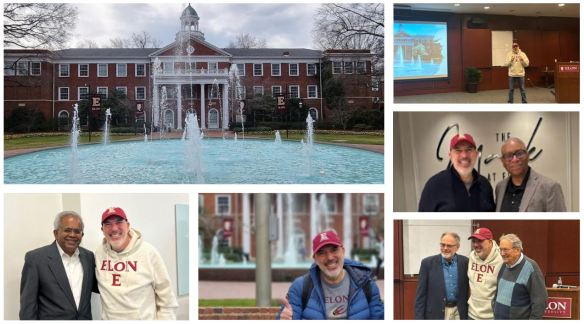
That was the magic recipe of the return trip to my alma mater this week after 35 years. Everything started few months back. Chaplain Richard McBride was responsible for the International Students in the late 80’s when I was a student at Elon University in the US and we stayed connected all these years. It was back in June when seeing in the social media a career advance I had, he tagged Dean Raghu Tadepalli, telling him that it would be great for both the School and me if I could be given the opportunity to speak at Elon University. Dean Tadepalli suggested to have a zoom call and the rest is history.
I was honored to participate in the Sales Advisory Chandler Board meeting, I spoke to 100+ faculty and students, I spoke to three classes of the Professors Chris Nelson and George Talbert on sales models, I met with the students of the dual program with University of Reims that Professor Hani Tadros leads, I met with Chaplain McBride and Dr Rudy Zarzar the Academic Advisor I had back in my Elon days, I saw after 35 years my buddy and roommate Pierre Mortemousque that we had a lot to catch up on and I experienced living on this lively, vibrant campus that means so much to me. I also enjoyed a fantastic two hour tour with the excellent professional Jonathan Miller who showed me how much Elon has grown.
During my speech I shared with the audience how Elon really helped me to find purpose during my youth that I was coasting for some time and how the School equipped me with skills that helped me in life and supported my corporate journey. Elon was the place that I learned to network with the right people being a ‘giver’, to value preparation, to persevere and seek out coaching for resetting, to know and love my numbers, to respect others and have a high degree of integrity at work and to continuously develop my communication and influencing skills. I also spoke to the students of the Business School about the skills they need going out there if they want to succeed in sales: sell with insights, have rigor in everything they do in sales, be tech savvy, work on their power skills and especially demonstrate cross-functional team leadership and be learning agile.
A three day lifetime experience for me. Three days at my School. My School which is today #40 Business School in the US, something that makes me super proud. My School with all those thirsty students and fine Academics such as Associate Dean Haya Ajjan and Professor Coleman Rich that I loved spending time with and exchanging. But it would be a major miss out to close my review without referring to Kim Phipps who was always there for me planning and executing everything and helping me and Elon to get the max out of my visit. Kim whom I called a ‘pass key’ joking when we spoke but now that I think about it again, I should have called ‘Red Queen’ inspired by Lewis Carroll and his Red Queen who meets with Alice in Wonderland and runs with grace all over, right and left, rapidly and continuously.
Long Live, Elon!!
Flex your Skills
by George Pastidis
Who hasn’t stand in front of the mirror, flexing his muscles and checking out himself? If you don’t do so after all, how will you know where you’re strong at and what are the muscles you need to work out on more. Shouldn’t we do that with our skills? Shouldn’t we find a way to understand what our skills gaps are and then do to the learning gym for filling in those gaps?

My colleague Cristina shared with me earlier today a quote of Leland Val Vandewall that I literally adored: “The degree to which a person can grow is directly proportional to the amount of truth they can accept about themselves without running away”. So damn true.
- The more blind spots we have, the less we grow.
- The better we know the critical skills for our job, the faster we get in the right track.
- The more thorough we see and accept what we’re missing, the better chances we have to get the miss-outs.
- The better we plan around our development, the easier we’ll get where we want.
- The braver we are to seek out feedback from people who have the expertise, the more we decrease the chances of staying with our blind spots.
- The more frequent we speak up asking for help, support and coaching, the more we get valuable help for growing.
- The more we plan to grow, the more we inevitably change our behaviors and develop our skills.
However, learning is neither an easy nor a simple journey. It often hides setbacks and failures which can get you upset and occasionally drive you to lose your self-esteem. The inner dialogues we often have are double-edged swords as they can help us anchor in our heads the purpose and the rewards or sometimes the other way around drive us to vicious cycles with anchoring the pitfalls and consequences. It’s those times that we need to reframe challenges and stick with the purpose or perhaps re-invent purpose.
Learning though is king in nowadays. Living in a workplace that is going through a mega transformation and experiencing a huge digital disruption, we cannot but make sure we reskill and upskill continuously and consistently. We have no other way but being regulars at the learning gym so we can gain the right to stand in front of the mirror and flex our muscles, flex our Skills, reward ourselves and embark on a new learning journey. Because learning and developing never stops.
10-year work anniversary: Adaptability, Stamina and Respect
by George Pastidis
It was ten years ago that I got on the boat to cross first the Ionian and then the Adriatic Sea, get to Ancona and then head to Paris driving. It was ten years ago when family and I made the decision to leave Greece and move to France joining Ericsson which was a huge milestone in the lives of all three of us.
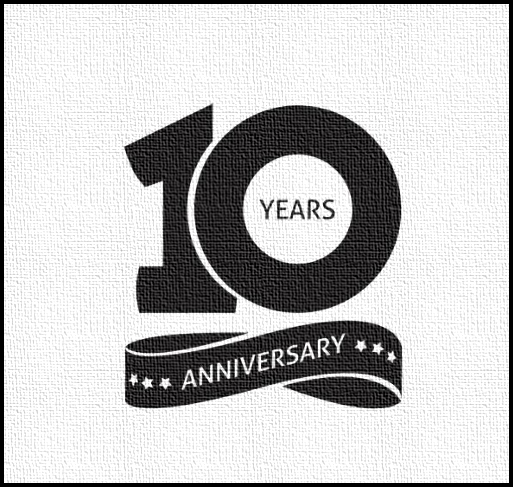
When my wife and I first shared with our daughter Chryssa, she literally freaked out. She was only nine years old and it was impossible for her to accept that she needs to leave behind her sister Nassia and her grandmas and friends for moving to a place that she hadn’t visited before. And her journey wasn’t easy at all. Although she had the time to have intensive lessons with a private tutor for several months, still she had a hard time in the beginning. But her aptitude for foreign languages, the solid French educational system and the fact of course that kids are anyway fast learners helped big time. In the end of her first school year, she was fluent and in the end of the second one, fully integrated culture wise. Today she’s a freshman student at Aix-Marseille University living on her own and studying guess what, French Literature and Philosophy, making us damn proud. If there’s one word that characterizes Chryssa’s journey is no other than “adaptability”. A huge quality.
My wife Katerina had probably the hardest job to do. She had to give up her job in Athens and take on the tough task to look for a job in a language that she knew a little and her level was way far from a professional one. She studied hard, made French friends that she associated a lot with and dived deep in the French way of living. This way she managed to skyrocket the level of her French, understand France and enabled herself a couple years later to seek out and get a great job. What an achievement especially if we consider that at the same time, she never stopped supporting Chryssa and me. We’re all so proud of her. The magic word here is stamina. Whet Katerina did, took a lot of “stamina”.
Myself I had the easiest job, coming here all set up and working in English which is pretty much like playing home ground. Only one thing to focus on: Ericsson. Started with an individual regional role and having today a leadership global role that I love, being part of a fantastic team. When it comes to my French, well…we better change subject 😊. Reflecting on my journey, it’s one word that comes to mind: “Respect”. Nothing else really.
Respect for France that provided so much to me and my family. Respect to Ericsson this super human-centric organization that never stopped giving me room to develop despite the fact that I am heading objectively speaking towards the sunset of my career. I love France and I adore Ericsson. Thank you both for this amazing ride that I wish it lasts many many more years.
What I tell my daughter before her new student life
by George Pastidis
We’re packing today for driving our daughter Chryssa to Aix-en-Provence tomorrow to help settle and start her studies at Aix-Marseille University. Planning to leave behind our little one after 18 years, putting between us 743 km, it’s neither easy nor simple for me and my wife. Although we might need ourselves some good tips soon for reinventing our relationship, for now I will stick with advising my daughter and all the kids going through a similar situation. A situation I experienced myself exactly 38 years back and I had to learn things the hard way.

The top priority is to mind your social life. Might wondering what kind of dad I am putting first the social life. But it’s super key. Our social life impacts our mental health big time. When your leave behind family and friends, you need to recreate your social network and at the same time you need to stay connected with your old buddies. But thanks to the social media the latter is not that difficult. The big task is to make new good friends. You need then to be open, choose to eat at the school cafeteria and not home alone, take part in clubs and associations, do team sports, pursue opportunities for group projects and studying. The more people you get to know the more chances you have to find the right friends for you, friends for life.
Aix-Marseille University has 80,000 students (in Aix and Marseille) out of which 10,000 are internationals from 100 different countries. What an awesome opportunity for Chryssa and all the kids to open their minds. I always tell everyone that I left Eon University holding two degrees. The Bachelor of Science one that the school gave to me and the one I earned from being good friends and roommates with people from all over the world. Those beers at 2 am discussing about our lives before Elon in New Jersey, Stockholm, Bordeaux, Mexico City, Amman and so many other places, really paid off. I went back to Athens four years later way wiser and richer.
Another tip is about having the right balance. I first said that it’s super important to prioritize your social life and make many good friends that you can count on, have fun and learn with. But the purpose shouldn’t be forgotten. There’s a learning and development purpose that should always be the kids’ compass for respecting theirs and their parents’ efforts. For securing their future. Gotta find the sweet spot between having fun and achieving your academic objectives then. You need to talk to your professors when you don’t understand things, associate not only with students you’re alike but also those you have a complementary relationship with and you can help each other. And miss no classes. Having good notes is something cannot be replaced by studying before the exams sometimes.
Lovely and precious times that I feel so nostalgic for. My last tip cannot be other than: seize every damn moment because such moments never come back, take good care of your health and remember that we’ll always be there for you. Any day, any moment. We love you!!
Find purpose at work
by George Pastidis
We were cruising through some YouTube music videos with my wife Katerina when we bumped into the concert for the 50 year career of the Greek singer Vasilis Papakonstantinou. A 73 year old man on stage bursting with energy and energizing a huge crowd that had swarmed the stadium. Super good!

Katerina looked at me, saying: “how come he’s like that while others looking forward to retiring the earliest possible?”. She was so damn right. My mind traveled back in ’98 when I had the chance to see the Rolling Stones in Athens and I was open-mouthed watching Mick Jagger at his mid 50s running like crazy left and right on a roughly 100 meters stage for about 2 hours. The funny thing is that he does more or less the same thing 25 years later. How come we see so many actors doing theater and movies at their late 80s? Why the vast majority of us who are white collars (the people who do hard labor jobs are another story and I cannot put in the same equation) cannot and we seek out retiring yesterday if possible? Why only few of us consider doing some kinda part time job at the best either because we lack hobbies or we struggle with the pension we get? What explains this huge difference?
Is it the passion about what they do that they have over the top and we lack? Is it because we’re drained sourcing energy from family, relationships, friends, sports, spiritual activities and volunteering maybe for getting going while their main source of energy has been their job itself? Is it the love they have for their job because they followed their heart when they were young while we compromised maybe choosing a profession with logical criteria and ranking employability first?
And what can we do now for overturning this situation? And please don’t take me wrong. I play no advocate of the ones who want to raise the retirement age because there are huge barriers such as ageism at the work-place that hinder this even for the ones who want to continue. My message here is about finding a way to make our job purposeful, meaningful, more fun, get up before the alarm goes off and rush to go to our office because we have love and passion for what we do there. We definitely unfortunately cannot travel back in time and choose to be singers and make top ten hits, actors and play in West End, authors and write best sellers, football payers in the final of Champions League, doctors and save kids in Black Africa.
We gotta be realistic and change things we can. And this is something, we cannot wait for management to do for us, going only with the motions. We have to work on our own to make it happen. Perhaps we must take the risk to change job leaving behind a toxic environment or job role doing something challenging or decide to take the lead of our team that we were hesitant to do before or get reskilled for pursuing a role that we have a passion for. We owe this to ourselves for living purposefully and happily the rest of our working years and being the rockstars on our stage.
How to quickly succeed in your new job
by George Pastidis
Perhaps I should be more concerned with the large workforce reductions in tech including the company I work for but this is a sensitive and gloomy issue that I wouldn’t like to touch for now. I’d rather have a write up on something way more positive that a good friend’s request got me thinking a lot about the last days. How someone can succeed quickly in a new job role and company.
Let’s make a step back. My good old friend Franck (true story but the name is random for the sake of the article) asked me to zoom last week because he had some exciting news to share with me. We did meet up. He had just accepted a fantastic job offer about a global role with way more responsibilities, way more money and a way bigger potential. Franck was ready to make a huge leap career wise. Fantastic news indeed. I was so happy for him. He then sought out my help. He wanted to know how he could alleviate risks and increase his chances to succeed and succeed quickly in his new company and job role. He was conscious of dealing with a once-in-lifetime opportunity that he had to thrive.I shared right away some first thoughts that occurred to my mind but I promised to come back with more ideas.
There you go, Franck:
- Activity: my first tip is about showing activity although I know that this might sound old-fashioned given that performance and business impact matter more. During the first days that you have no opportunity to show impact and make the difference, putting time, being present and showing activity matters. For example, if you’re a sales professional, have many customer calls.
- Visibility: it’s not far from being active but with visibility I mean to create opportunities for making yourself visible and start building your own brand within the new company. For example, learn and use the company’s social media etiquetteinternally and externally (i.e. Yammer, LinkedIn).
- Relationships: socialize with your new colleagues. Be nice, be available, be a “giver”, and work on building your network fast.
- Understanding: understand the company’s existing situation, pain points, how they make and save money, key objectives, ways of working and your key stakeholders that will decide or influence directly or indirectly your future there.
- Feedback: you need feedback big time. Seek it out. Reach out to your manager, teammates and key stakeholders and understand where you stand, how you go and what you could do better. Fill in your gaps and leverage your strengths.
- Manager: Team up with her. She believed in you. She trusted you. Trust her back and show it to her. You need her feedback and support in particular. Make sure you support her as well.
- Impact: I started with activity which is counterintuitive in nowadays. Cannot though miss out impact. Make sure you set some short run goals (agreed with your management) and have some quick wins there.
- Celebration: But make sure also that you celebrate your wins and communicate well what you have achieved. Call a review meeting or make use of an internal newsletter. Remember that you’re not a Boy Scout working for the greater goodonly after all (although even them put on their badges to show off their achievements).
- Office: yeah, go to office. I know it sounds bizarre but in today’s hybrid way of working, it matters pointing this out. During the first months or year, regardless of what kind of contract you have, plan going more often to the office. You will integrate faster and you’ll understand better your corporate culture. Unless of course your role is such that you have no choice but working remotely.
These are my two cents for my friend Franck and everyone shares with him the same exciting challenge. A challenge that tens of thousands of people being laid off worldwide these days would die for. Take the challenge, prepare for and ace it. Good luck, Franck!!
From Adam Strange to ChatGPT
by George Pastidis
When I was a kid, one of my very favorite comics was Adam Strange. It was a rather cool comic published from the late 50s thru the early 60s. When I started being capable of reading magazines, it had already been discontinued in Greece but I discovered and got access to that through trading old magazines with older kids. It was featuring an archaeologist who was teleporting between planets with his super jetpack, had a laser gun, a powerful suit and helmet protecting him in tough situations and he would develop his intellect with studying. Ray guns and flying cars all around. This is how people were fancying their future, our present, back then.
But things turned out to be less fancy. Cars still drive in the streets and guns fire bullets. Things did evolve big time of course but towards a different direction. The author of Adam Strange who wanted his hero learning from studying and travelling had not foreseen Artificial Intelligence (AI). Did not expect the breakthrough app ChatGPT developed by OpenAI that comes to revolutionize in such way our interaction with Artificial Intelligence (AI) that creates unthinkable really opportunities and threats, hopes and fears.
ChatGPT answers your questions with fab language skills, generates answers that will look and sound human-like, writes poems that will blow the mind of your husband, wife or partner on Saint Valentine’s day next week, does your school homework while you play video games, tailors your brief bio and resume to a specific job post, saves you from the hassle of looking for reviews about the tablet you’re interest in buying, cracks a joke and keeps you company a night you feel lonely, proposes a good Italian recipe for lasagna that you so much love, helps you get done with the book that you have beenstruggling years to finish. I can go on and on for hours talking aboutthe opportunities around counseling, telemedicine, fitness coaching, teaching, outbound and inbound sales and customer service and of course code programming. ChatGPT is an application with enormous and unpredictable (for the good and the bad) capabilities.
But there are numerous threats as well. How the employability of so many people like sellers, customer service reps, entry level programmers, teachers will be affected? So many jobs will be lost. Others will be created of course but are they will be enough to make it up? Will the school system support the new skills needed? Are the companies willing to invest (really invest and not with big meaningless powerpoints and mission statements) in the reskilling of their more mature employees, helping them with their challenging reinventing journey? And what about the intellectual property of artists, scientists, researchers and authors? How this will be protected? What about students who will choose to somehow cheat (themselves actually) by having the app doing the big bulk of work and them only the finetuning (perhaps in few years no finetuning will be needed)? It’s so bizarre that ChatGPT is already talking about and working on the detector of AI generated text ChatGPT’s creator made a free tool for detecting AI-generated text – The Verge .
The king question is how we can leverage this technology for good, in an ethical way, respecting each other, sourcing credible only information and anticipating the numerous threats. This takes planning, collaboration, legislation and above all a sincere will by both the state and the private sector. Meantime play with ChatGPThttps://chat.openai.com/ , learn from and help it to learn from you.If Adam Strange manages to teleport with his powerful jetpack, he will be damn astonished.
Interested in checking out George’s recently published book 90 Short Stories for Better Business? If in Greece you may order at any preferred bookshop of yours or use the following eShop to order https://www.politeianet.gr/books/9786188249882-pastidis-george-koukounari-90-short-stories-for-better-business-337558 If outside Greece, go on your Amazon convenient site and order, searching by my name or the book title. Here’s the US link for example https://www.amazon.com/dp/B0B2TSN36N
4 + 1 books for the coming holidays
by George Pastidis
Holidays is just around the corner and we all have some more time for reading a good book between family and friends gatherings and celebrations. I would like then to recommend 4+1 books that I read in 2022 for 4+1 different reasons that I will elaborate in below.
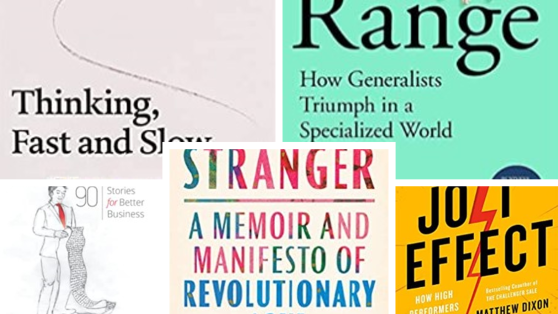
1 Range: How Generalists Triumph in a Specialized World
David Epstein starts putting us before the dilemma: We want a world of Rogers or Tigers? He then explains that while Tiger Woods was winning bets playing golf with adults when he was at kindergarten, Roger Federer was exposed in many different sports before he finally focuses on tennis at his fifteen. And he goes on with citations of numerous studies in different areas such as music, science etc, showing how important and more effective is to have a broad range and be a well-rounded person.
2 See No Stranger: A Memoir and Manifesto of Revolutionary Love
An amazing book by an amazing woman. Valarie Kaur, a civil rights lawyer, travels us through her Sikh family’s experiences and the discrimination they suffered from and explains why the compelling force of love can help us replace darkness with light and together build the better world that we want and deserve.
What can I really say about this incredible psychologist and economist who has been awarded with the Nobel Memorial Prize in Economics Sciences for his work on behavioral economics. In this book, Daniel Kahneman explains how we tend to anchor and trip up ourselves, resulting in having biases and making the wrong decisions and helps people overcome prejudice, improve behaviors, make better decisions and have a better life.
4 The Jolt Effect: How High Performers Overcome Customer Indecision
To be totally honest, still reading this one which got in the bookshelves few only weeks back. His co-author author Matthew Dixon (Ted McKenna is the other one) is the author and researcher behind the huge breakthrough book and sales model of Challenger Sales. This time, Matthew Dixon explains why we make a mistake treating every stalled business opportunity like there’s a status-quo bias while the extended research showed that indecision often has its roots not at the preference of the existing situation but at the fear of doing the wrong thing. He then proposes the JOLT paybook for fighting indecision appropriately. A book, I totally recommend to all sales professionals managing B2B complex sales deals.
5 90 Short Stories for Better Business
4+1 I told you for a reason. The reason is that the fifth book I would love to hear you chose to read is not a book that I simply read. It’s the book that I wrote. Nothing to do with the books in above which are out of my league. But it’s a book written with love and experience. Love for sales. Love for the corporate world that I entered when I was very young and 33 years later, I brag that I have so many stories to tell for. Stories that helped me learn and develop. Stories that I want to share with you, hoping that they will help you make your own stories. Afterall, we are our stories.
Wish you Happy Holidays together with your beloved ones!!
“Quiet quitting”? Really?
by George Pastidis
Quiet quitters make up at least 50% of the U.S. workforce, the Gallup research finds and the LinkedIn editor Yessi Bello Perez LinkedIn defines “quiet quitting” as follows: “is about rejecting the notion that work has to take over one’s life and that employees should go above and beyond what their job descriptions entail. According to Metro, this can take many forms – including turning down projects based on interest, refusing to answer work messages outside of working hours or simply feeling less invested in the role.”

People in the US experience some very low unemployment rate which perhaps explains the luxury of becoming a quite quitter but the bizarre thing is that we see this trend becoming global and spreading even in Europe where unemployment varies from 6 to 13% for God sake. 500+ people participated in a survey in April in France, Germany, Italy, Spain, the Netherlands and Poland out of which 50% said they experience severe stress and mental health issues in the post-Covid era Nearly half of European workers at high risk of mental health issues, new poll shows | Euronews. Perhaps this explains.
But the key question here is: Quiet quitting is a solution? How come? Why?
Burned out? Tired? Underpaid? Sick and tired of your boss? Disappointed with the poor leadership you experience? Fed up with the crap that my generation got you into? Looking for some better work life balance? And you choose to quit and get quite? Really?
Now it’s your time to get damn louder my friend and change things. Help to get our lives better. Raise your voice, speak up, oppose your manager, get another job, a purposeful job, learn, develop, get better and help yourself, your future, your family and secondarily the organization you will decide to work for. Really work for. Wholeheartedly. As you deserve. Life is a hands on game for no quitters. Life is a game for people who have a purpose and when they’re not given a purpose, they work harder to find and create one and then they stand up and fight for that. If you experience lousy and uninspiring leadership, have ownership. Demonstrate self-leadership.
I had in a training of mine (voluntarily) today a 60+ year old participant who’s retiring in few months time. This is the mindset. This is the kinda answers we need to our problems. Learning, developing, trying and fighting to the end.
Interested in checking out my recently published book 90 Short Stories for Better Business? If in Greece you may order at any preferred bookshop of yours or use the following eShop to order https://www.politeianet.gr/books/9786188249882-pastidis-george-koukounari-90-short-stories-for-better-business-337558 If outside Greece, go on your Amazon convenient site and order, searching by my name or the book title. Here’s the US link for example https://www.amazon.com/dp/B0B2TSN36N Looking forward to getting your feedback!!
The Power of Skill
by George Pastidis
Five months ago, I started having in the gym I go to, personal boxing sessions in an effort to somehow wake up my body, improve my fitness and lose the weight I had gained during Covid. It worked. On top of those payoffs, I am having fun. I love it. A week back, I had my first after holidays practice and an interesting conversation with my coach.

He pointed out that my straight right is very strong while my left one is very weak. This got me thinking. Some years back, this would have been totally reasonable and understood as I am big time right-handed. Would be of no surprise. I can hardly trust my left with a Q-tip for God sake. But seven years ago, I had an accident while bench pressing, I ruptured my right chest and I chose not to have a surgical repair as it doesn’t affect my normal daily function. I only lost roughly 10% of my right’s strength on various strenuous activities and 20% on bench press specifically. If you see me benching today, you’ll notice that when I am on a bench press load mode, my right, the supposed to be good hand, always struggles following the left. However, my coach said that in boxing still my right functions way better and it’s way stronger. Bizarre!
Bizarre but I will dare to explain. On benching and some other tough activities which require strength, my injured right arm has a hard time to respond. Boxing though is not like that. It’s not only about strength. Technique is hugely significant and it’s actually the catalyst of power there. It was technique that made Muhammad Ali so good at boxing. No wonder why he was bragging about “flying like a butterfly”. It was his technique and of course intelligence that enabled him to knock out George Foreman who at the time was at his prime, younger and stronger on the famous ‘rumple in the jungle’ fight in Zaire in 1974. It’s about skill as well and here comes the Power of Skill. Interesting, isn’t? Skill gives you power!! Skills gets you way stronger.
Isn’t like that in all areas? Aren’t skills that get us better equipped and stronger in our professional life? Isn’t having skills, learning how to improve our skills and willing to learn new skills the stuff that guarantee our employability? And in today’s world that the education provided is unfortunately still more knowledge than skill based, we all need to seek out experience and opportunities for learning by doing. The skill we need to start with is no other than learning that is a major skill itself. Learn how to learn, learn how to apply knowledge that we get from school to practical situations on our jobs. Learn to get skilled and eventually stronger. Learn to leverage the power of skill.
Interested in checking out my recently published book 90 Short Stories for Better Business?
If in Greece you may order at any preferred bookshop of yours or use the following eShop to order https://www.politeianet.gr/books/9786188249882-pastidis-george-koukounari-90-short-stories-for-better-business-337558 If outside Greece, go on your Amazon convenient site and order, searching by my name or the book title. Here’s the US link for example https://www.amazon.com/dp/B0B2TSN36N Looking forward to getting your feedback!!
Wimbledon mindgames
by George Pastidis
We witnessed an extremely interesting tennis match last evening. On one hand very spectacular with two athletes demonstrating their high level of tennis skills and intelligence and on the other hand disappointing, seeing two athletes competing in being rude and immature, and an audience loving and often encouraging these disgraceful and appalling behaviors of both.
Things got way too heated with Nick Kyrgios and Stefanos Tsitsipas yesterday. Nick was business as usual. Enormously talented with a huge serve and at the same time bad-mannered and once again big time focused on fighting with the umpire and finding every possible way to get in the mind of Stefanos, turning the tennis match into some kinda circus performance. He did play excellent tennis but at the same time, he played with Stefanos’s mind who proved to be his easy victim. Stefanos played fantastic tennis but being mentally vulnerable, he allowed Nick to play with his mind, becoming his copycat. They played four sets on court and a fifth one is still on, exchanging insults over tv interviews and social media.
Could Stefanos do any better? Yes, he could.
He should have been prepared better. Not tennis speaking because his tennis was adequate. He knew Nick well. So his team. He should know and have accepted from the very beginning how things would turn. Sports are not exactly lovey dovey. Neither competitive athletes. Especially the ones who have Nick’s temper and eccentric behavior who consistently are disrespectful to everyone. He should have first accepted that having it given and be better prepared mentally to deal with.
Stefanos chose to play villain on court mirroring Nick’s behaviors and then go on an interview and switch to the victim’s role. Both choices are wrong and did anything but helping his case. He should have let off steam, totally ignore Nick, continue focusing on his great tennis. The more he would have behaved like that the more he would have destabilized Nick, the more Nick would be left all alone arguing with the umpire, drowning on his own. Perhaps Stefanos would have achieved one more key thing this way. The audience would have teamed up with him, treating Nick as a villain and not as an entertainer.
Nick and Stefanos are very good tennis players, making a treasure for the tennis world. Nick and Stefanos need serious help though. They need coaching not on playing tennis because this they master. They desperately need help with their attitude. They need to mature up. This way they will blossom, becoming tennis legends. The potential is there.
PS if there’s one thing that they both did good is that they did have the handshake of the here attached photo which BBC needs to explain the tennis world why they chose not to show live. Is this their way to make tennis intriguing and attractive?
Maybe there’s some purpose
by George Pastidis
I was in a panel interview some months back and I heard the candidate speaking about having a purpose in his job. Of course, I remained polite, treating this person with respect but deep inside me, I didn’t appreciate that. I thought that it was too much. It’s often that I hear corporate people in general or even sales enablement practitioners speaking about having a purpose. But purpose for me is something way bigger, something way higher.

Purpose for me it’s what those doctors and nurses in hospitals fighting Covid had. Purpose has the teacher who has dedicated her life to educating children often for a small compensation. Purpose is what drives army officers who are there to protect their countries.
But something totally unexpected occurred yesterday that made me start reconsidering things. Recently, I had my first book published and I got a notification on LinkedIn about a post referring to my bookthat really surprised me. A contact of mine(1) Ioanna Karatzoglou | LinkedIn that we have never met before, had posted the following message together with a photo of my book:
“Before more than a year, I had the privilege to attend an eye-opener seminar for Sales Enablement Program from Mr. George Pastidis, Assoc CIPD . A very practical seminar, full of authentic advices and different selling approaches.After this, I decided to regularly follow Mr. Pastidis blog (https://lnkd.in/e_mMJSre). Sometimes, I agreed with his point of view and sometimes …I agreed less! Whatever was the case, Ihave to admit that I was always looking forward for his next post!
And here we are now with Mr Pastidis book which I have just received! “90 short stories for better business”. I am so excited to read it, as I am sure that his “Short stories” comes along with big ideas for better business. Especially, the chapter related to “Negotiations”-very helpful, at least for me.
Mr George Pastidis, Assoc CIPD: Thank you for sharing your experience and knowledge with us.
I am looking forward for your next post 😊”
And yes, Ioanna’s post honestly got me thinking that maybe there’s some kinda purpose in the humble, trivial, not that important job of sales training, sales learning and sales enablement. Maybe that interviewee that I hadn’t thought very highly of, knew better.Maybe helping young professionals to grow and develop, involves purpose. Maybe writing or speaking about things that shed some light in areas that learners struggle with, is purposeful. Maybe there’s some purpose after all.
Be like detective Wallander or not?
by George Pastidis
I am watching these days the Netflix crime series Young Wallander based on Henning Mankell’s fictional inspector Kurt Wallander. Now speaking, the superb novelist Henning Mankell is unfortunately dead and his beloved iconic hero Kurt Wallander reached the later stages of dementia long ago. Netflix revived him, diving in his youth and the start of his career as a recently graduated young detective.

The more I watch Kurt fighting with the bad guys and his own daemons as well, the more I wonder whether is better for your own good, the others’ good and the organization you work for to be wholeheartedly dedicated to your purpose and truly, deeply care for others or take a distance and do the job following the manual. Kurt does care for others. He fights for others. When they’re hurt, he gets hurt, and when they die, he mourns their death, getting devastated. Their pain is his pain. He takes shortcuts and often goes off the protocol for saving others. This attitude gets him in trouble. When he succeeds, they give him the credit with reservations and when he fails, they grant him the debit at lightspeed. But if someone debits him with failure faster and first every time is no one but himself. He’s drowning his failures and successes in alcohol and later in life, he suffers from diabetes before he forgets everything, drowning in the cruel abyss of dementia.
I cannot resist wondering then. Who’s better for his own good and the good of others eventually? The cop who has a great sense of purpose but he acts intuitively, putting himself and others at risk sometimes or the one who sticks with the process, follows rules and with a clear head makes decisions based on logic? The surgeon who loves his patients and he gets ruined when they don’t make it, failing to function the following days or the one who takes a distance and does the job without ever losing her cool? The seller who builds personal bonds with his customers and he’s always there for them despite his family priorities or the one who simply does the fundamental things right, juggles successfully between customer needs and employer’s interests and knows how to keep the right work-life balance without bringing home the work problems, without letting any business issue hijack his goodnight sleep that will? The athlete who lives for the team and does anything to support the team win the trophy, putting her health at risk or the one who draws a red line, making not unnecessary sacrifices, running may be “slower” but for a longer time?
When I write on my blog, raising such dilemmas, I often have in mind to provide an answer. Not the right answer. Only my answer. Not this time though. This time I am afraid I ain’t got one. I got no answers. Only food for thought.
“Reposted in memory of Martin Luther King Jr.
#mlkday”
Martin Luther King Jr. never died – (MLK Day – Reposting)
by George Pastidis
51 years ago, on Thursday, April 1968, Martin Luther King Jr. was standing out at the balcony of his hotel room in Memphis when a bullet entered through his right cheek. King dropped unconscious and an hour later, according to the autopsy report, he passed away.
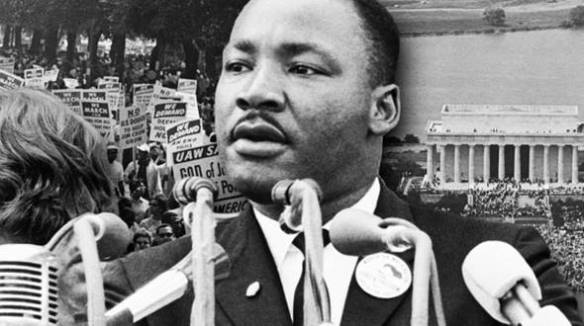
Looking up the word “martyr” in Cambridge dictionary, I found the following two definitions:
“a person who suffers very much or is killed because of their religious or political beliefs, and is often admired because of it or someone who tries to get sympathy from others when he or she has a problem or too much work”. If we take the perspective of the positive association of the word martyr which is used to describe a heroic figure who despite the personal cost, does what is best for others, I strongly believe that King was a martyr.
Many people remember King from his historical “I have a dream” speech which every time I watch – and trust me I have watched tens of times – it gives me the chills. King did a lot more than sharing his dream. In less than ten years, he delivered 2,500 speeches, he travelled millions of miles and he was arrested about 30 times. The life threats for himself and his family was part of his every day routine. They say that the autopsy report showed that although he was 39 years old only, his heart was in a condition of a 60 years old man because of the stress that he had experienced. But none of this activity would make any real sense if it has not led to results; if it was not associated with glorious achievements both personal and for his movement. King had an instrumental role in organizing the famous Washington march in 1963 where he delivered his notorious speech inspiring hundreds of thousands of people. He was the first African – American to be named “Man of the Year” in 1963 and the youngest at the time recipient of Nobel Peace prize in 1964. But above all, King’s non-violent efforts led to 1965 Voting Rights Act and he became after his assassination, the symbolic leader everywhere that injustice is met.
King gave to the noble cause, first his time and peace of mind, then his health and finally his life. King consciously walked his way to martyrdom. King died for his dream. He died so others can see the dream he had to come true. He died to live in the hearts of people. King never really died. Martyrs don’t die. Martyrs live forever. So is King.
The Last Acceptable Bias in the Workplace?
George Pastidis joins Matt Cooley and Upside/Downside a podcast for Finance Business Partners to talk about age bias in the workplace and strategies for thriving later in your career.
Listen to the 12 min podcast: The Last Acceptable Bias in the Workplace? (buzzsprout.com)
Job interviews: wrong turns both sides often take
by George Pastidis
It’s been a long time since I had my first job interview as a candidate in 1992. I was still serving my military and I had sent out tens of applications not keeping track of them really. I was called to a job interview and I had no clue what it was about. The lady running the job interview asked me which one from the two roles they were seeking I was interested in and I said: “both”. No wonder why the interview lasted about ten minutes only. Ever since, I have been many times in both sides of the table and I am often surprised with the way either job interviewers or job candidates handle things. I always observe with curiosity and often disappointment the behaviors both sides demonstrate.

I will start with the job candidates who when they answer questions, good or bad, tend to instead of giving a concrete answer, preferably backed up with a solid example, they go on and on down to unnecessary details and getting off the subject. And the more the job interviewers low react (something particularly inevitable when their attention lowers) the more the candidates over-react getting tedious, tiring and boring.
Another key task job candidates often fail is to balance between being agreeable or pathetic and arrogant or pushy. Both extremes are a no go. They need and they must juggle between the two extremes, coming across as assertive and confident people who do not lack empathy. They have to show that they are doers who can simply do the job but at the same time they are collaborative people that their teammates would smoothly work with.
The job candidates must prepare adequately and show this. They have to prepare to pitch themselves in a rational and emotionally compelling way, they must prepare to handle tough questions (even the silly ones) and they should prepare to ask insightful questions. Instead of waiting for the job interviewers to ask them in the very end of the interview whether they have any questions, they should proactively plug in their questions here and there throughout the interview making the whole call as a two way dialog of two equal grown-ups who partner for the common benefit. And they need to listen, really listen to the answers they get for asking good clarifying questions next. This way they show that they are good listeners and they don’t stay on the surface of things, asking questions for the sake of questions.
Let’s move to the other side of the table now, the one of the job interviewers. I have no words to express how much I dislike some of their cliché and often silly questions. Questions like “what’s your biggest weakness?”. This question is so common and unfortunately totally ineffective, leading the candidate to giving an answer definitely not sincere. They will have to embellish things, coming up with weaknesses which often are strengths such as “I am a perfectionist” or “I stress too much for getting things impeccable” or “I am a workaholic”. Silly questions cannot but trigger silly answers. What if the job interviewers had asked them to give an example of a recent missed business opportunity or fail, the reasons behind that and the actions they took for not letting this happen again? Much better, I think.
Another wrong turn interviewers take is when they ask the candidates to go over their resume. How come? Don’t they have it right in front of them? Why don’t they ask them instead to pitch their resume in a couple of minutes explaining how the experience and skills they have acquired over the past years make them the right suit for this job role, seeking out to see if they can put together a concise and meaningful message instead of rambling for hours.
They often ask people how much money they currently make or what their expectations are, a question which is and perceived as a curveball. The candidates fear that if they aim too high, they might get eliminated and if they aim too low, they’ll leave money on the table. But why would someone want to make such an awful start with someone whom plan to collaborate with? Doesn’t their company have salary ranges to prevent having wage gaps and unsatisfied employees?
I will close this with a funny story a very experienced HR executive and friend George Tzilivakis shared with me some years back. In the 90’s one common question (and silly) was: “if you were an animal, what animal you would want to be?”. The poor candidates were usually using lions and eagles to answer this question, trying to show power, leadership etc. George had a different answer though. He said: “a goat”! The job interviewer looked at him rather surprised and George explained that goats are sweet, quite animals that provide us with milk that’s so much needed. Kudos to George!
Mikis Theodorakis: a great leader passed away
by George Pastidis
Mikis Theodorakis, the music composer and political activist passed away. The man behind the soundtracks of “Zorba” and “Serpico”, the man who turned the poems of the Nobel Prize winners poets Giorgos Seferis and Odysseas Elytis into songs, the man awarded the Lenin Peace Prize, the man who resisted and fought hard during the World War II occupancy of Greece and was repeatedly tortured, the man who fought for his beliefs and did time on exile during the civil war of Greece, passed away.
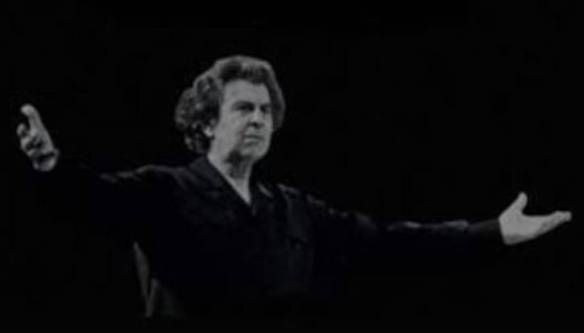
A great man passed away. A huge leader passed away. I will never forget the Athens concert tribute to Mikis in June 2017 with a choir of 1,000 youth from all over Greece. It was towards the end of it when he was assisted to come on stage on a wheelchair in order to direct the awesome song of his “Arnisis”. He got so emotional. We all got emotional. The crowd was cheering thrilled with the eyes watering. I teared. The song got over but Mikis could not hold his tears any longer and he forgot to give the finish sign to his orchestra. And they never stopped playing. They continued till their leader, this great man, this great Greek told them to, raising his hands; those beautiful, big and strong hands that kept all of us high up and safe for 96 years. It is really worth watching the following video which is a small evidence of Miki’s huge personality and the love and affection that we all had and we’ll always have for him. A small evidence of a great leader (653) Η συγκίνηση του Μίκη Θεοδωράκη στο Καλλιμάρμαρο 19/6/2017 – YouTube . A minute later, he tried to stand on his feet and tell us that he loves us. He couldn’t. He whispered that in the ear of his aide so he can get the message to us. We didn’t whisper. We shouted: We love you, Mikis.
You’ll live forever.
12 hours with no mobile phone
by George Pastidis
It was October 1994 that I got my first mobile phone, the Ericsson 197. I didn’t get it actually. I was given that one when I entered the telecoms to work for a mobile network operator. Did I get excited any? Not really to be honest. The moment I would walk in back to my apartment after work, I would switch off my phone to pick it up the next morning going to work. I started using it a little more when I went to a business trip a month later. But still, when I would hear my phone ringing in the evening, I would hide myself to answer speaking very low for not being noticed. I wasn’t feeling that comfortable. But so many things changed since back then.

We saw the mobile handsets first getting smaller and smaller and becoming a lifestyle choice. Later they started getting bigger and bigger making the world smaller instead, bringing people and places closer with calling, texting, emailing, and social media, not to mention all those apps for damn everything, from booking your sun-umbrella on the beach to dating and checking out your oxygen levels. Literally amazing stuff.
Last evening, I had dinner out with a good friend. He was driving and he dropped me off at home after midnight. When I got in my living room, I put my hand in my front left pocket where I always have my phone in. Wallet in the right (as my grandad taught me to do) and phone in the left. The phone wasn’t there. 12 hours of panic followed:
I thought that two things could have happened. I either forgot it at the restaurant or in my friend’s car. I would have immediately call him but I didn’t know his phone number by heart. That’s something our mobiles made us stop doing. We memorize PINs instead.
I went to bed. I was too tired to think clearly and do anything. I felt totally helpless. I was already lying in bed when I had my epiphany. I thought I remembered the phone number of my friend. Thank God, I got up to write it down because I wasn’t any sure that it would be the same case in the morning.
A couple of hours later, I woke up. A thought had crossed my mind: What if my phone had dropped the moment I was walking out of my friend’s car? No way I could sleep. It was 3am when I went out to walk back to the exact place my friend dropped me off. Nothing was there.
I went back home making hard efforts to sleep. I got up at 6am and I wanted to give my friend a ring but I waited till it goes 7.30 am. Bingo, I had the number right and my phone was in his car. We arranged to meet at a convenient point to both of us (not that simple because my friend was 40km away), right after some dental work I had to do. It took us some time to arrange the exact point of meeting because I wouldn’t have my phone in case I would do something wrong.
Meantime, I started working. I had some business calls to take. Felt like putting some music on while showering, but my Spotify app was with the phone. Wanted to check out what time it is a couple of times but my clock was with my phone.
It was 10.30am when I got in my car to go to my dentist. I had gone there only once with the help of my Google maps. But my Google maps app was with my phone. I made a small mistake that cost me 10 minutes but I managed to get there. My dentist kept me longer than what I had budgeted. I would stand my friend up for about 15 minutes and I did not have my phone to text him. I had to take the doctor’s phone to call him up.
When we finally met, I grabbed my phone with joy. My baby was with me. My front left pocket was again full. My hand’s extension was in place. I texted my wife to tell her that I had my phone back. She said: I am surprised you slept at night. I answered: Hell, I didn’t!!
We need more guys like Giannis
by George Pastidis
Last evening, I set my alarm clock quite a few hours earlier than usual for a good reason. Giannis and his Milwaukee Bucks played and won the NBA finals. I am so damn happy. But I do not celebrate the win of a Greek athlete as I would usually do. I feel like partying neither because the Bucks are the NBA champions nor because Giannis was awarded the NBA finals MVP, scoring 50 points. I am bursting with pride for Gianni’s amazing journey. I am bursting with pride for his unparalleled personality.
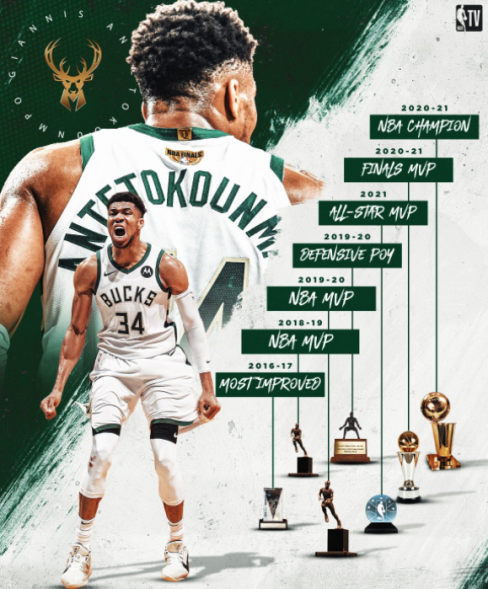
I have a hard time to find enough and big enough words to describe the capabilities and virtues of this great young man. Few words that quickly cross my mind in no particular order are: humbleness, hope, courage, dream, diligence, strength, hard work, patience, energy, resilience, commitment, respect, trust, curiosity, family, learning agility, growth mindset, values, principles, humor, dedication, development, discretion, sincerity, friendship, loyalty, care, team spirit, kindness, love. And all these words boil down to leadership. Giannis is a leadership role model for us, our children, everyone.
Giannis who did not have the energy to play competitively in his teens because he was not eating properly…
Giannis who couldn’t play basketball together with his older brother Thanasis because they had to share shoes…
Giannis who often had to play hide and seek with cops in Athens while he was selling different items…
Giannis who did not have a citizenship till his 18 years….
Giannis who together with his family got evicted from home few times….
…is today a role model. Giannis and his journey which already made a fascinating book by Jose Manuel Puertas and soon will be a Disney movie is a story to tell. It’s a story to tell our children for teaching them not athleticism really but to never stop dreaming and working hard for making their dreams happen; teaching them as Giannis says to make their dreams happen, living in the moment instead of bragging for the past or making arrogant statements for the future; teaching them to never lose focus; teaching them first ethos.
Giannis, moments after making his dream come true, after achieving his goal, he set the next one: He wants a repeat. He wants the Bucks to dominate!
Hell yeah, we need more guys like Giannis.
Should training in the post-Covid era switch back to its face-to-face modality?
by George Pastidis
It was about a year and a half ago that the learning and development community was caught off guard by Covid. First, business travels were banned and then any kind of indoor or even outdoor gathering was totally out of place. We literally stopped going to our office. Traditional face to face training had to change and be replaced by a mix of synchronous and asynchronous learning solutions. Everyone, learning professionals and learners had to adapt in the new reality, changing the way we train and the way we learn.

But sooner or later, we’ll get through with Covid and an interesting debate will pop up. Shall we go back to where we were when it comes to the training delivery or we better stick with our virtual trainings, paying some respect to the efforts we made for mastering this new training modality? After all the OPEX line of our organizations was helped some by the reduction of travel expenses. A rather difficult question that the learning professionals shouldn’t answer having in mind their personal habits. We should neither answer this taking in consideration only what our learners like better. The latter one, the learners’ preferences is definitely a criteria but not the only one.
The Kirkpatrick evaluation model sets a great exercise with useful questions that if we have answered for the two modalities, we can easily compare and make safer decisions:
- Do they like?
- Do they learn?
- Do their behaviors change?
- Do they perform better?
Another factor that should be taken into account is the socializing and peer learning one. The Corporate Executive Board (CEB) Digital Learning Survey clearly shows that both Baby Boomers and Millennials like learning from peers. People need to and must learn together. They want to learn with and from each other and they do this formally and informally; during the classroom training, the community interaction and the coffee-breaks and the learning professionals have to facilitate and enhance this no matter what modality they choose.
Finally, because “no money – no honey”, because in nowadays EBITDA is King, the training budget has to be treated with the utmost respect and the cost of training and its Return on Investment (ROI) or at least Return on Expectations (ROE) cannot be but another key criteria.
In conclusion, we can neither be rigid nor we can decide on this key matter based on what we or our learners prefer or are used to be doing. That would be extremely simplistic and dangerous. We should evaluate things carefully, mix and match the different modalities depending on the subject, target, audience, and budget, and set the conditions that will enable people to really interact and learn together and perform better, face to face or/and virtually.
Home working during Covid: it’s his birthday
by George Pastidis
It’s been such a challenging year. We got caught off guard. First, we got shocked, then we pushed back. We were disrupted and we became disruptors to make it through. We had our losses and our wins. We had our learning takeaways and we have many challenges ahead.
When it comes to working at home, there is one thing that I find particularly interesting. I remember myself before Covid, feeling safe and capable to perform only at the office. Perhaps I would take a very early or a very late simple call with a colleague at home. But that’s it. If my work would involve something a little more complex or maybe some exposure to a greater audience, for example a presentation or a webinar that I had to drive, I would go with my comfort zone and that would be the office and only the office. There I had all my stuff and a network that I trusted more although I had fiber at home.
A year later, things have changed. I have everything I need here at home. But the key thing is that working at home became a habit. And habit is comfort zone. And comfort zone is safety. This is where I feel safe now and if you ask me to go back to the office, I know it sounds funny but I honestly will again find rather challenging. It will throw me off big time.
A year back, we fought back, we disrupted, we innovated, we evolved the hard way and we reinvented ourselves. We made this home working a habit. The big challenge ahead is to enable us to juggle easily among different workplaces. The habit should be to leave habits behind and never stop adapting, flexing, feeling safe and perform to the max no matter where we work at.
“Reposted in memory of Martin Luther King Jr.
#mlkday”
Martin Luther King Jr. never died – (MLK Day – Reposting)
by George Pastidis
51 years ago, on Thursday, April 1968, Martin Luther King Jr. was standing out at the balcony of his hotel room in Memphis when a bullet entered through his right cheek. King dropped unconscious and an hour later, according to the autopsy report, he passed away.
Looking up the word “martyr” in Cambridge dictionary, I found the following two definitions:
“a person who suffers very much or is killed because of their religious or political beliefs, and is often admired because of it or someone who tries to get sympathy from others when he or she has a problem or too much work”. If we take the perspective of the positive association of the word martyr which is used to describe a heroic figure who despite the personal cost, does what is best for others, I strongly believe that King was a martyr.
Many people remember King from his historical “I have a dream” speech which every time I watch – and trust me I have watched tens of times – it gives me the chills. King did a lot more than sharing his dream. In less than ten years, he delivered 2,500 speeches, he travelled millions of miles and he was arrested about 30 times. The life threats for himself and his family was part of his every day routine. They say that the autopsy report showed that although he was 39 years old only, his heart was in a condition of a 60 years old man because of the stress that he had experienced. But none of this activity would make any real sense if it has not led to results; if it was not associated with glorious achievements both personal and for his movement. King had an instrumental role in organizing the famous Washington march in 1963 where he delivered his notorious speech inspiring hundreds of thousands of people. He was the first African – American to be named “Man of the Year” in 1963 and the youngest at the time recipient of Nobel Peace prize in 1964. But above all, King’s non-violent efforts led to 1965 Voting Rights Act and he became after his assassination, the symbolic leader everywhere that injustice is met.
King gave to the noble cause, first his time and peace of mind, then his health and finally his life. King consciously walked his way to martyrdom. King died for his dream. He died so others can see the dream he had to come true. He died to live in the hearts of people. King never really died. Martyrs don’t die. Martyrs live forever. So is King.
Do not humiliate America again
by George Pastidis
That should be the new slogan replacing the lying line “make America great again” which Donald Trump loved selling and millions of people kept buying for years, making last evening a great country getting embarrassed worldwide and democracy being hurt big time.
America deserves so much better. America is the country which nurtured and made the dreams come true of millions of people swarming in from all over the world. Only today, it’s the home of 40 million immigrants. America is the country that was close to elect a second-generation immigrant in 1988 when Michael Dukakis gained the vote of 46% of people. America is the country which elected a black President for two consecutive terms. America is the country which had 48% of its people voting a woman in the Presidential elections of 2016. America is the country that its music such as rock, soul, jazz and rap, has become the music that we all listen to across the world. America is the country that its film industry has managed to find the right balance between making art and have a commercial success, conquering the cinemas and TV sets globally.
Of course, America is also the country of Second Amendment which protects the right to keep and bear arms. It’s the country that institutional racism is an undoubted fact. It’s the country that many of its citizens have a difficulty to understand that they need to contribute in the welfare of the weak. But still I believe that in my balance sheet, America is a great country that deserves a lot better. America after all is the country that provided education and a home to me for four years changing my life and this I will never forget and I will always be grateful for.
America gave us a lesson yesterday. Witnessing this powerful country with a piece of art constitution, having its democracy threatened, we all realize that democracy shouldn’t be taken for granted. Democracy should be guarded by Democrats and Republicans, by everyone. Democracy is too precious to leave Trumpers (and we have people sharing this DNA everywhere in the world) play with.
Thus, we must identify the root-cause of this sad situation which is definitely not Trump. The root-cause is fanaticism and if we drill down further, the resentment and bitterness that lead to bigotry. If Trump wasn’t there for these people, they would find another politician to tie in with and if no such politician was available, they would turn to religion or sports. They would fight in the social media over the rivalry of Lebron and Giannis or Ronaldo and Messi, cursing each other hideously. We’re talking about people that life hasn’t treated well. They have bitterness, resentment and a lot of anger. Anger which must be replaced with love, something not easy at all. These bigots cannot be talked out of this using logic and persuasive skills. Bigotry takes time and efforts to change. You have to eliminate the reasons that these people have so much anger about. You need to help them see and understand that the huge demographic changes happening in the States currently are not a threat for them. You have to rethink and reset the education provided, give them opportunities to travel and interact with people who see as strangers today. Help them reflect and think of their own ancestors hundreds of years back who they had to leave Ireland chased for their religion beliefs or a tiny poor village in Sicily after WWII or Denmark in the 19th century that poverty was pushing them to immigration.
America and Europe are changing, becoming more and more multiracial, multicolor, multifaith and multigendered. We all must welcome and embrace these inevitable, drastic and massive changes, showing compassion. The noted author and film-maker Valarie Kaur says in her book See No Stranger: A Memoir and Manifesto of Revolutionary Love: “Is this the darkness of the tomb, or of the womb? I don’t know. All I know is that the only way we will endure is if each of us shows up to the labor…Revolutionary love is how we stay in the fire. I believe revolutionary love is the call of our times. “Revolutionary love” is the choice to enter into wonder and labor for others, for our opponents, and for ourselves in order to transform the world around us. It is not a formal code or prescription but an orientation to life that is personal and political and rooted in joy. Loving only ourselves is escapism; loving only our opponents is self-loathing; loving only others is ineffective. All three practices together make love revolutionary, and revolutionary love can only be practiced in community.”
The COVID-19 employers and employees new relationship
by George Pastidis
The recent very interesting Gartner New Employment Deal article, talking about driving performance via flexibility, creating a shared sense of purpose and building deeper connections made me reflect on the subject. Made me start thinking whether this is something real new or it was always the case.
Choice – Organizations today are either letting their employees to decide where to work from or they support the one-way decision made by the authorities to have them working from home or elsewhere. Organizations have to provide flexibility and empower their people giving them choice. The survey of Gartner revealed that when employees have the choice the high performers rise from 36% to 55%. The truth though is that this was always the case. Dr Kamal Birdi of Sheffield University studied productivity in 2008 across 308 companies and found that the improved performance of employees who were given the choice accounted for a 9% increase in value added per employee. The more people they are empowered, the more people are given the choice, the more organizations and management show trust and give flexibility to their people, the better employees always perform. The better they always performed. The difference today – and allow me to believe, tomorrow too – is that people must be given the choice and employers have to learn to deal with this situation wholehearted.
Purpose – The Gartner survey found the 40% of highly engaged employees increases to 60% when people see that their organizations take a stance on a social issue. Because people need to have a purpose. It was the same message actually that Lewis Caroll in 1865 was trying to get across in his book Alice’s adventures in Wonderland with his Cheshire Cat hero. Alice was trying to find her way and Cheshire asked her where she wants to go. Alice answered: “anywhere” and Cheshire with its famous mischievous grin said to her: “then it doesn’t matter which way you go but prepare to walk long enough before you get somewhere”. People always needed to have a purpose and today that organizations have others working from home and a certain population occasionally working from the office or the factory because they cannot do otherwise, a common purpose will be a key driver for a common culture too.
Holistic support – The Gartner survey showed that organizations that support their employees holistically, see their high performers increasing by 21%. By holistically is meant to care not only about their work performance but about their personal lives as well. Again, when did people wouldn’t appreciate a manager providing high performance coaching with such holistic perspective. Who wouldn’t perform better if treated with respect and dignity, with genuine care and affection. But what makes things different now is that having people working from home, this is now an imperative as work and personal life are matters which cannot be treated separately any longer.
Choice, a sense of purpose and a holistic support of employees should always be in the center of employers’ attention. Now way more than ever. Employers and employees just started a new relationship that they have to make work.
Do it like Nole and Stefanos
by George Pastidis
I love sports. I love playing and watching sports and I love reflecting on sports. Sports help you learn and sports help you tell good stories about lessons learned. One recent awesome source of great stories to tell was the Roland Garros semifinal between Novak Djokovic and Stefanos Tsitsipas. The diligent, intelligent, machine like Serb who together with the enthusiastic, stubborn, talented Greek, gave the world three great lessons.
Lesson 1: Work – Stefanos being down two sets to none and heading to a three-nil score, he was furious. But instead of getting mad at the referee or at his racquet, smashing it against the court, he got mad at himself. The camera gave us a brilliant shot of Stefanos yelling out loud three words (in Greek so few sport commentators could really understand and tell): work-work-work. Those words kicked-off the awakening of Stefanos. Stefanos actually shouted at himself that harder work, more work, smarter work is needed to take down Djoko.
Lesson 2: Stamina – He shouted three times “work” and some magic powder covered the court. Stefanos was back. He found the guts, the stamina, the courage to be brave and stand against his fears, to stand against the legendary Nole and this time shout at him that he won’t give up. He won two sets in a row against the number one.
Lesson 3: Experience – But there was one more lesson to be learned left. The experience of Nole had not kicked in yet. Nole never lost his cool. He stayed calm and he utilized his great experience the best way possible. He knew when to run and when not. He knew what are the points he needs to chase and when to invest himself and we all saw that when Stefanos was ran out of steam in the fifth set of the match, Nole fresher than ever nailed the match and his presence in the Roland Garros final.
Work, Stamina and Experience. Thank you, Novak! Thank you, Stefanos!
Dealing with ageism in the workplace
by George Pastidis
Fifteen years back, I saw one day a friend clean-shaven after having for a long time a 10-day beard. He explained to me that being in his mid-fifties, he needed to get rid off his beard that was turning grey for avoiding being perceived and treated as a tired veteran in his workplace. I believed that things had gotten better ever since. Not sure how much though.
Another friend who happens to be an experienced executive search executive called me the other day. Ageism in the workplace was one of the many things we chatted about. He shared with me that a major multinational company gave him a brief recently about someone they’re looking to recruit who should be in his early forties max. The sad and oxymoron thing is that we’re talking about a company which heavily campaigns about diversity and inclusion. I guess age is not included. Of course, ageism is not related to recruiting only. You can get discriminated when they bypass you for a promotion despite of the skills set you have proved to have or when they don’t approve your participation in some expensive training event because they don’t see it as an investment that will have the necessary payoffs because you will retire or get redundant soon.
An AARP workplace 2018 survey says that 2 out of 3 workers 45+ have seen or experienced ageism on the job and among the 61% of respondents who reported age bias, 91% said they believe that such discrimination is common. Patricia Barnes in her interesting Forbes article goes over the research of Professor David Neumark, saying: “Applicants applied on-line for jobs and completed a battery of about 100 questions, leading to numerical scores. The application did not require a disclosure of age. Applicants were selected for job interview based upon their scores. Neumark found that older applicants were selected for job interviews ‘at equal or higher rates to younger applicants’ when their age was unknown. However, he notes, the age of older applicants became apparent as soon as they arrived at the job interview and they were subject to visual observation. At that point, he said, age discrimination kicked in. The job offer rate after the in-person interview was about 46% lower for older applicants than it was for younger applicants, even though many older workers had superior qualifications and assessments”.
New laws may be needed for fighting ageism in the workplace and I believe they will soon come. But the million-dollar question is: how can someone, me, you deal with this now. I strongly believe that the answer can be nothing but learning, growth and development. Be curious and learning agile, stay current and up-to-date on trends of your market and industry. Learn every day something new. Mentor others and do not hesitate a moment to seek out reverse mentorship and get paired with a younger colleague, learning from and with him. Leave behind your fixed mindset and demonstrate a growth mindset and ask your line manager to support your growth journey. Use your social media to share your network of friends, customers, peers and partners that your grow every day; you learn and get better every day, you’re truly open-minded. Then trust me, few only will dare to discriminate you and if some of them do, some others will challenge them. You might even get the chance to let your beard grow back.
Power Skills για το ψηφιακό παρόν και μέλλον της εργασίας
by George Pastidis
Άρθρο μου με θέμα POWER SKILLS ΓΙΑ ΤΟ ΨΗΦΙΑΚΟ ΠΑΡΟΝ ΚΑΙ ΜΕΛΛΟΝ ΤΗΣ ΕΡΓΑΣΙΑΣ περιλαμβάνεται σήμερα 11 Ιουλίου στην ετήσια έκδοση LEADING EMPLOYERS in GREECE που κυκλοφορεί σε Αθήνα και Θεσσαλονίκη με την εφημερίδα ΝΕΑ.
My article POWER SKILLS FOR THE DIGITAL PRESENT AND FUTURE OF WORK is included today 11 July in the yearly edition LEADING EMPLOYERS in GREECE with the newspaper NEA in Athens and Thessaloniki. Apologies that it’s only in Greek!
Thank you ICAP Group of Companies!!
Ήταν τέλη Σεπτεμβρίου του 2019 όταν η Global Learning & Development ομάδα της Ericsson, οργάνωσε στη Kista της Στοκχόλμης το ‘Time to Learn΄ διήμερο, με συγκλονιστικές παρουσιάσεις για το μέλλον της εργασίας στη νέα γεμάτη από προκλήσεις ψηφιακή εποχή. Ο οικονομολόγος και συγγραφέας Dr Daniel Susskind, η ερευνήτρια και καθηγήτρια ρομποτικής Danica Kragic και ο συγγραφέας και πρώην Chief Envisioning Officer, Microsoft UK Dave Coplin, ήταν ορισμένοι από τους καλεσμένους ομιλητές που αποτέλεσαν πηγή νέας γνώσης, πληροφόρησης, προβληματισμού κι έμπνευσης και μοιράστηκαν ενδιαφέροντα στοιχεία όπως τα παρακάτω:
- «Σχεδόν το 50% των εργασιών θα γίνονται αυτοματοποιημένα τα επόμενα χρόνια με τους εργαζόμενους να αντικαθίστανται από ρομπότ και Artificial Intelligence» Dan Schwan, Guardian
- «Έως το 2020, περισσότερο από το 1/3 των απαραίτητων δεξιοτήτων στην εργασία μας, θα είναι δεξιότητες που σήμερα δεν υφίστανται» World Economic Forum
- «Ενώ το 2016, οι σημαντικότερες δεξιότητες ήταν: οι βασικές τεχνικές γνώσεις και δεξιότητες STEM (Science, Technology, Engineering and Mathematics), το 2018 αυτό είχε ήδη αλλάξει σε: συμπεριφορικές δεξιότητες (ευελιξία και θέληση για αλλαγή), Ηγεσία Ομάδας και δυνατότητα θέσης Προτεραιοτήτων» IBM Institute for Business Value
- «Το μεγαλύτερο έλλειμμα δεξιοτήτων που διακρίνουμε στους εργαζόμενους, είναι σε soft skills. Είναι δύσκολο να προβλέψεις τις απαραίτητες δεξιότητες για το μέλλον αλλά η σημαντικότερη ίσως είναι αυτή του learning agility» Kelly Palmer, The Expertise Economy
Όλες οι ομιλίες είχαν κοινό παρονομαστή και μήνυμα: η ανάπτυξη των δεξιοτήτων που σήμερα ονομάζουμε power skills όπως ενσυναίσθηση, δημιουργικότητα, ηγεσία, συνεργασία, προσαρμοστικότητα, θα είναι το κλειδί της επιτυχίας για τους σημερινούς οργανισμούς που επιθυμούν να είναι μαζί μας και στο μέλλον. Αν θέλουμε να συνεργαστούμε αρμονικά με τις «μηχανές», θα πρέπει κάθε μέρα να γινόμαστε καλύτεροι. Θα έχουμε θέση και χώρο στο ψηφιακό μέλλον της εργασίας αν συνεχίσουμε να δημιουργούμε αξία και θα συνεχίσουμε να δημιουργούμε αξία αν αναπτύξουμε δεξιότητες στις οποίες οι «μηχανές» σήμερα δυσκολεύονται κι αυτές δεν είναι άλλες από τα power skills.
Αυτά όμως ήταν ομιλίες και συζητήσεις που έγιναν πριν 8 μήνες. Μετά ήρθε ο COVID κι άλλαξε τις ζωές όλων μας. Έφερε πολύ γρηγορότερα πράγματα που ήταν αναμενόμενα αλλά όχι τόσο σύντομα και ήρθαν για να μείνουν. Ένα από αυτά ήταν η εργασία από το σπίτι που οι περισσότεροι από εμάς ζήσαμε με τον εγκλεισμό. Μέσα σε λιγότερες από 24 ώρες, μεταφέραμε το γραφείο μας στο σπίτι, αρχίσαμε να συναντούμε τους πελάτες μας στο Zoom, χρειάστηκε να ανακοινώσουμε δύσκολα νέα στους συνεργάτες μας και τότε καταλάβαμε πόσο σημαντικό είναι να έχουμε την κάμερα ανοιχτή και να τους κοιτάμε στα μάτια όταν τους τα λέμε. Ακόμη, συμμετείχαμε σε σύνθετες διαπραγματεύσεις με πολλά εμπλεκόμενα μέρη για τις οποίες άλλοτε θα είχαμε κάνει τουλάχιστον τρία ή τέσσερα ταξίδια και τα καταφέραμε, μάθαμε να παρουσιάζουμε εξ αποστάσεως, καταλάβαμε πόσο σημαντικό είναι να ξέρεις να θέτεις προτεραιότητες.
Ουσιαστικά ανασύραμε από το ΄hard drive΄, δουλέψαμε κι αναπτύξαμε power skills όπως η δημιουργικότητα, η καινοτομία, η προσαρμοστικότητα στις αλλαγές, η συνεργασία ακόμη και σε συνθήκες δύσκολες και πρωτόγνωρες, η ενσυναίσθηση, η επίλυση προβλημάτων και η ηγεσία. Ο COVID αργά ή γρήγορα θα πάψει να μας απασχολεί. Όχι όμως και το ψηφιακό μέλλον που ο COVID έκανε πιο γρήγορα παρόν. Και την εργαλειοθήκη των power skills μας, δε θα πρέπει ποτέ να ξανακλείσουμε σε μια αποθήκη.
Κι αν πρέπει να ξεχωρίσουμε τη μία πιο σημαντική δεξιότητα, αυτή δεν μπορεί να είναι άλλη από το learning agility. Την περιέργεια κι αυτοπαρακίνηση που πρέπει να διαθέτουμε ώστε συνέχεια να μαθαίνουμε, συνέχεια να αναπτύσσουμε νέες δεξιότητες. Ο μέσος όρος ζωής των δεξιοτήτων σήμερα είναι μόλις δύο χρόνια. Δεν μπορούμε να πάψουμε στιγμή να μαθαίνουμε.
Πώς όμως μπορούν οι επιχειρήσεις να ενισχύσουν το learning agility;
Πρέπει να πάρουν την εκπαίδευση στα χέρια τους – κάποτε οι επιχειρήσεις είχαν την πολυτέλεια να μπορούν να καταναλώνουν εκπαίδευση που παρήγαγαν άλλοι. Όχι όμως πια. Σήμερα τα πανεπιστήμια δυσκολεύονται να ακολουθήσουν τις ταχύτητες μέσα στις οποίες καλούνται οι επιχειρήσεις να κινηθούν. Θα περιμέναμε από μια εταιρεία τεχνολογίας, για παράδειγμα, να παράξει μάθηση για Internet of Things (IoT) και Artificial Intelligence (AI), μάθηση που θα ανοίξει σε όλο τον κόσμο χωρίς να την περιορίζει στο δικό της προσωπικό.
Πρέπει να προσλαμβάνουν δεξιότητες κι όχι ονόματα – το όνομα ενός καλού σχολείου ή μιας μεγάλης πολυεθνικής στο βιογραφικό ήταν προηγουμένως αρκετά. Σήμερα οι επιχειρήσεις καλούνται να δίνουν μεγαλύτερη σημασία στις υφιστάμενες δεξιότητες των υποψηφίων και στην έμπρακτη διάθεσή τους να μαθαίνουν συνεχώς. Το learning agility θα πρέπει να είναι ένας πολύ σημαντικός δείκτης.
Πρέπει να διατηρούν ψηλά το learning agility – Σύμφωνα με την Whitney Johnson ο κάθε εργαζόμενος έχει το δικό του κύκλο μάθησης που έχει τρία στάδια: inexperience – engagement – mastery, κι όταν κανείς φτάνει στο τελευταίο είναι φυσικό το ενδιαφέρον του για μάθηση να ατονεί. Είναι εκείνο το σημείο που η επιχείρηση οφείλει να βρίσκει τρόπους να ωθεί τον εργαζόμενο σε ένα νέο κύκλο μάθησης ώστε να συνεχίσει να επιδεικνύει την απαραίτητη περιέργεια, να συνεχίσει να εξερευνεί, να συνεχίσει να είναι learning agile.
Γιατί μόνον όταν συνεχίσουμε να μαθαίνουμε, συνεχίσουμε να αλλάζουμε, συνεχίσουμε να αναπτυσσόμαστε, οι «μηχανές» θα είναι μηχανές μας και η τεχνολογία φίλη μας που μαζί θα πορευθούμε αρμονικά στο ψηφιακό παρόν και μέλλον.
The workplace of the future exercise
by George Pastidis
We read and hear every day that most of the big major corporations, making good use of the valuable learnings over the last months, they are kicking-off ambitious and needed initiatives looking at the workplace of the future. Looking at recreating a workplace that will meet better the needs of people and organizations. A human centric workplace that will help people enhance their performance while it’s adapted in the current and future needs and conditions. The right workplace of the new digital era.
Yesterday, I listened on a podcast, Borje Ekholm, President and CEO Ericsson, saying: “About 85,000 today working from home, running Networks, R&D, support functions. So overall, we are migrating every function of the company to home. Of course, there are some that cannot work from home like field engineers for example. But otherwise we migrated and it’s really thanks to a very strong IT infrastructure we have. We invested in that already before and now we can leverage that. So, we migrated almost from the old normal to the new normal overnight in the beginning of March. So, 85,000 working remotely just overnight, it’s an unbelievable achievement. I would say the crew we have working on our IT support have done a fabulous job of keeping the company running”.
Another interesting read I had lately, it was a sports article which explained that people tend to select sports often depending on their locus of control. People with internal locus of control, they believe that the outcomes of their actions are results of their own abilities and they are keen on choosing sports that they can do on their own such as running and biking. They persevere, they are self-disciplined and they don’t need others to get motivated from. On the contrary, the ones with external locus of control who believe that their performance depends on external attributes, they have less faith in themselves, they give up easy and being self-aware of this, they tend to choose activities where external motivation is included. We see them choosing team sports and activities with many people involved in, with scheduled practice sessions, competition, awards etc, things that help then stay committed, disciplined and motivated.
Might look like I mix up heterogeneous things, jumping from one topic to another. I do this for a reason. I make this sports analogy, trying to read and explain why working from home can work for some people and cannot work for some others. I know people that working at the office before the lockdown, they would put about 9-10 hours a day out of which at least 45 minutes would be spent on a lunch break. Now, working from home, they work 11-12 hours a day and they break for a 15 min quick lunch. I am one of them. But I am also among the ones who choose solitary sports. I love running and biking at my preferred pace, giving myself time to reflect. I never enrolled for a group lesson at the gyms I was a member of. And when I had to take tennis, squash or boxing lessons in the past, I made sure I do this with personal trainers. I assume, I have an internal locus of control. I also have friends who have told me: “I need to get back to the office”. “I have a hard time to discipline now”. “I need to socially interact with my colleagues”. “I miss our chats over coffee”. I am not sure that these guys would do sports only in organized groups, but I have the hunch that this behavior depends big time on the external locus of control they have.
I think that in this so much needed “design the future workplace” exercise, companies should have in mind that one size definitely does not and cannot fit all. They have to take in serious consideration not only the type of work their people do but their personalities and personal preferences and of course other external barriers they may have such as little kids at home. Not an easy exercise but an exercise badly needed for building a human centric workplace which can get the best out of everyone and can have the business running better than before in the digital present and future.
5 things I learned after a month of lockdown
by George Pastidis
Exactly one month of lockdown has passed. One full month working from home remotely. And although I was occasionally working from home before, although my global role in sales enablement is such that even when I was sitting in the office, I was actually working remotely, it feels quite different now and I got to discover, learn or confirm few things.
1 I work more and better from home – I waste no time looking for quite rooms to take my calls and I have no distractions working in open space. Travel time is zero and I can easily accommodate very early calls with my Asian colleagues or very late evening calls with the Americans. Someone can argue that the work-life balance is at stake this way. Valid point. Unless you find purpose on what you do at work. Then you have a hell of a balance.
2 I love having sports in my life – Not that I didn’t know or value that before. But in these days, every evening I leave the apartment to go for a run, I honestly feel the endorphins blowing before I even hit the road. Yesterday, President Macron spoke to us and I had one big concern. I was afraid to hear him telling us that we cannot go out for a physical exercise anymore. Thank God, we keep running!
3 I respect technology more and more – It enables some of us to keep working seamlessly from home and all of us to stay connected with the ones we love. This is just amazing. I often wonder how easier my life would have been when I was a freshman student in the States struggling away from my family and my buddies if I could smoothly communicate and exchange with them. If I didn’t have to write letters or wait for a friend who was serving his military in Greece at the time to give me a call from the army base without paying or me to give a collect call to my parents when I was getting way too homesick.
4 I see how dangerous fake news are – So many crappy rumors and conspiracy theories are spread every day. Sometimes by people who love sharing their ignorance or lunatics that can do anything for some publicity. They even dare to recommend drugs cocktails against the coronavirus putting human lives in danger. And these silly rumors find fertile ground on fear or ignorance and they blossom and spread faster that the virus. Sad! We have to push back hard here and do our best to isolate these people.
5 I appreciate the real important stuff – There are many things I could mind about. Not going to a restaurant for a nice French cuisine dinner, being sometimes a little bored, missing Athens and not knowing if I have my usual summer vacation at a beautiful Greek island. But I choose not to. I don’t give a damn about these little things. I am grateful that my loved ones and myself are healthy. I adore that I continue having my job and I continue being effective on it because this is another key thing for being mentally healthy.
As a colleague was telling me the other day, we cannot but continue pursuing and achieving our business and personal goals as usual in an unusual world.
Working from home in COVID-19 times
by George Pastidis
We all are bombed with tons of brilliant tips for working better remotely in these COVID-19 times. Lots of them are real good stuff that I appreciate. Some others though are a bit funny addressing the wrong target group of people. It’s one thing to guide someone who plans to switch to teleworking in good and stable times and it’s another to share luxury tips with people who see their personal and work lives turned upside down overnight.
One cliché tip I have a hard time to get is: have a dedicated work-space! Have a dedicated work-space, really? When husband, wife and a couple of children work and attend school remotely in one apartment? Can this really be a useful tip? I doubt it.
Another good one is: do not change your work day routine! I wonder how my good friend George who has three children between one and seven years old feels about this great tip. George who waits for the kids to go to bed to manage work in peace and he doesn’t go to bed himself before 3am. And Maria another good friend of mine in Milan who has nothing or very little to do work wise unfortunately, she chose to focus on learning instead to feel like she’s doing something useful.
I cannot resist in sharing a tip myself: do your wise cherry-picking when you read all these stuff that can make you feel awkward, incapable, miserable and get you depressed. You know better. Flex to adapt in the new reality, embrace the challenge you are facing and make things work for you and your family. Be creative, innovate and disrupt yourself in these times that your life is big time disrupted. Do not try to do the same things the same way. Do things differently and you may do things even better in the end of the day. You may do something that will prove to be a big investment for your life or work future.
Stay home. Stay safe. Stay healthy. Stay creative.
Write the script of this disaster movie
by George Pastidis
Challenging times. Tough, unprecedented, weird, sad times. I could go on and on thinking of the right words to describe better what we go through. But there are no such words. The whole thing is like those disaster or FBI movies that a cool agent is looking for the evil guys who are about to spread a horrible virus which could kill thousands or millions of innocent people. The bizarre thing with this movie is that we’re the actors and to a great extent, we write the script and we co-direct it.
Because it’ s us who choose if the movie will be about lone-wolves or team players. It’s us who choose if the movie will have stories about the community’s wellbeing or our own personal payoff. It’s us who choose if the movie will show an economy getting paralyzed or an economy transforming. It’s us who choose if the movie will talk about people who give up easily or fighters who stand up and win first their battles and then the war. It’s us who choose if the movie will talk about people who lined up outside the grocery store for vanishing things or guys who checked with the old lady or the single mother living next door if they need us to do their shopping. It’s us who choose if the movie will talk about people who refused to change at work or guys who seized the opportunity for reskilling so they can adapt in the new situation and get by. It’s us who choose if the movie will talk about losers or winners. Little or great men and women. Families who fall apart or come stronger together. It’s us we choose if we become history or write history that our children will be proud of. It’s us who choose if the movie will have a black or happy end.
Is it only us? It’s not only us. But we have to write the part of our damn script the best way we can. We have to co-write, co-direct and play our happy end.
Martin Luther King Jr. never died – (MLK Day – Reposting)
by George Pastidis
51 years ago, on Thursday, April 1968, Martin Luther King Jr. was standing out at the balcony of his hotel room in Memphis when a bullet entered through his right cheek. King dropped unconscious and an hour later, according to the autopsy report, he passed away.
Looking up the word “martyr” in Cambridge dictionary, I found the following two definitions:
“a person who suffers very much or is killed because of their religious or political beliefs, and is often admired because of it or someone who tries to get sympathy from others when he or she has a problem or too much work”. If we take the perspective of the positive association of the word martyr which is used to describe a heroic figure who despite the personal cost, does what is best for others, I strongly believe that King was a martyr.
Many people remember King from his historical “I have a dream” speech which every time I watch – and trust me I have watched tens of times – it gives me the chills. King did a lot more than sharing his dream. In less than ten years, he delivered 2,500 speeches, he travelled millions of miles and he was arrested about 30 times. The life threats for himself and his family was part of his every day routine. They say that the autopsy report showed that although he was 39 years old only, his heart was in a condition of a 60 years old man because of the stress that he had experienced. But none of this activity would make any real sense if it has not led to results; if it was not associated with glorious achievements both personal and for his movement. King had an instrumental role in organizing the famous Washington march in 1963 where he delivered his notorious speech inspiring hundreds of thousands of people. He was the first African – American to be named “Man of the Year” in 1963 and the youngest at the time recipient of Nobel Peace prize in 1964. But above all, King’s non-violent efforts led to 1965 Voting Rights Act and he became after his assassination, the symbolic leader everywhere that injustice is met.
King gave to the noble cause, first his time and peace of mind, then his health and finally his life. King consciously walked his way to martyrdom. King died for his dream. He died so others can see the dream he had to come true. He died to live in the hearts of people. King never really died. Martyrs don’t die. Martyrs live forever. So is King.
Why networking matters to me (New)
by George Pastidis
I had great time during holidays. I did lots of things with family and friends, visiting my home town, Athens. Among the highlights of my holidays were a reunion with former colleagues and friends from a mobile operator I worked for 25 years back, an old-school (literally and metaphorically) party with my friends from my elementary school and several get-togethers with friends from my Scout group. Not to mention tens of one-on-ones with buddies from my youth. A friend noticed those interactions of mine and he said to me that I am way too nostalgic. This feedback got me start thinking. Is there something wrong with me? Why I like so much staying connected with the past? Does this mean maybe that I have no life now? I did not go to see a therapist. But I did try to give my self some explanations, some answers.
Wasn’t Aristotle who had said that “man is by nature a social animal”? We all live and grow and develop, entering into relationships, bonding with people and interacting with them throughout our life journey. Some of us love being in those social and professional networks we belong to, and some others feel less comfortable. Some of us see the payoffs of the “give and take” component in those networks and make good win-win use of, some others allow first being used and then hate it and there are always those that are there for feeding their ego only. We all assign a different value to our different networks and make a different (or no use) use of and do a different handling of those.
I personally love being in networks. I love building networks, both social and professional. And I love it even more when I see those overlapping. When I see good customers or colleagues becoming friends and vice versa. I love building networks because:
First, I simply love building those – It’s so nice getting people together. Gathering different personalities, synthesizing different ideas, facilitating discussions. I find it so creative and it gives me such a satisfaction to take this intellectual challenge, first energizing my self and then energizing others.
I see my self-esteem and confidence growing – because you have no choice but excelling and overperforming for building or maintaining a network. You have to trust and be trusted by others and you must leverage on your communication skills in full. When you see things happening then, when you do achieve a positive result, it feels so damn good.
Opportunities may arise – something extremely important for someone like me who did not happen to be born in a “connected” family. Our networks can be new windows to new opportunities, as long as they are not built for this exclusive use only, because others will soon tell and disengage.
Developing lifetime relationships – which is the most important thing for me. Life is nothing but a collection of moments we live with people in our neighborhood, at work, at school, at the scouts or a sports club. People that we have fun and bitter moments with. People that we have laughed, felt excitement, got upset, or cried with. Moving on in life, I choose not to leave behind neither those moments nor the guys I lived those with. I want to carry them with me.
I will keep on building networks. I will keep on growing in and with my networks, socially and professionally.
Two things I learned in 2019 (New)
by George Pastidis
It sounds perhaps like something other than growth mindset, speaking only about two things that I learned this year. I should clarify then that I am only referring to the two tip top things I learned in 2019. Two things that I believe they’re of great significance and they meant a whole lot for me. Two things that I feel peers and friends should pay the utmost attention in and benefit from because they are success drivers.
The first one is about: the digital present. I am a Generation-X guy in the borderline with baby-boomers. I first saw a Commodore 64 in 1985 when I went to the States for my freshman year of college. And I made back then the silly mistake to take the Basic programming language in my very first semester. In a foreign country, studying in a foreign language, I booked myself another struggle. I flanked the class. Thank God, I had the chance to take again during the winter term where I aced it, boosting my GPA big time. But I did not start using computers at work before 6 years later, in 1990 when Corfu Hilton Hotel, my first employer, installed computers at the front office. It’s been 29 years ever since. I will lie if I tell you that I have been an early adopter all these years when it comes to technology. The IT support guys were always my favorite colleagues for reasons you must understand. But the digital world is here. It’s not knocking on our door and it has nothing to do with a future thing. It cannot be more present. The digital present. And we have to ace it the first time coz in real life, there are no retakes sometimes. Flanking it, would hurt. I checked out my mobile a while ago. I have 23 apps, leaving out the ones that I use occasionally only, out of which 6 are for corporate use: Yammer, Microsoft Teams, Skype for Business, Degreed, Mentorcliq and myCWT. This is how I exchange and meet with my colleagues, learn with my peers, monitor the projects I am driving, keep track of my business travels. Josh Bersin, the noted global analyst said at the Unleash HR tech conference a month ago that each employee, soon will be using a two digit number of corporate apps and platforms. My first key learning then is: the digital present is here and if you have heard of the expression “love it or leave it”, this does not apply here. We have to only love it. Love it and not just live with it but drive it.
My second learning had to do with partnership leadership. I had a humorous exchange the other day with Vidya Krishnan, our Chief Learning Officer. I was kidding, telling her that the Greeks tend to have a bigger penetration in our organization’s learning and development team than the Indian colleagues (She is American with Indian background). And she got back to me, saying: “partnership is the new leadership, so bring it on!”. Although we were both joking at the time of this dialog, I loved this line. I loved this line because it’s so true. Partnership really is the new leadership. Partnership, collaboration, teamwork, working together – you name it – is everything. The organization charts and the projects running horizontally throughout the large global organizations are changing big time. People work often remotely, they’re hosted in different countries, they need to partner and collaborate with colleagues sitting in other countries, teams, units and functions or even externals. Leadership is less of managing our team members. Leadership is about coordination, about facilitation. Leadership is about partnering with and coordinating the efforts of multilevel stakeholders who sometimes can be team members of ours, some other times less senior working for other leaders or more senior than us. And we have to take the best out of all those people. Partnership leadership is also about self-leadership. When we don’t get the right empowerment, we have to ask for it. Leaders and followers need to partner and tango together to success. Team or project members cannot and should not expect the leader only to demonstrate leadership. On the contrary, they have to proactively demonstrate thought leadership themselves, taking the right initiatives which will bring things forward.
The digital present and the partnership leadership are the two things I learned, or confirmed, in 2019 and I value the most. Two concepts that go hand in hand, if you think about it. They explain, support and they resonate with each other, having one common denominator: they are key success drivers.
Why Scouts and Surfers are best equipped for the digital era
by George Pastidis
It’s not every day that we have the chance to experience unforgettable moments at work. It’s not every day that you want to seize and capture every single moment at the work field. It’s not every day that you leave work tired as hell and the same time proud and happy for the achievements of the team.
Last week Ericsson’s Global Learning and Development team brought this Time to Learn 2-day, 24-25 September, of inspirational and thought-provoking sessions about the future of work. We enjoyed two days of motivational sessions from internal and external speakers who shared their brilliant insights about the digital era and how that will impact our lives in general and our lives at work in particular.
Time to Learn hosted speakers broadcasting live, from Kista, Stockholm and Plano, Texas to all Ericsson people across the world. I had the opportunity to lead our internal Presenters Contest which yielded great interest across Ericsson and tens of strong candidacies. We selected 4 tip-top impactful speakers who shared their view about the future of work and the competences that we need for thriving in this challenging and changing environment. One of our winners was my colleague and good friend Radhi Nouira who explained why scouts and surfers are best equipped for the digital era.
Radhi has over 25 years of experience in the telecommunications and ICT. His expertise incorporates strategy, sales, business development, people leadership, planning, executing large-scale implementations and operations. He currently holds a position of Head of Digital Business Solutions in Ericsson, based in Paris, France. Radhi enjoys travelling, swimming, running and of course he loves scouting and surfing. His biggest by far asset though is that he has lived and worked in 5 different continents, being a true world citizen.
Radhi shared with us very interesting insights from credible sources, few out of which follow here :
- “Nearly 50% of jobs will be automated in the coming years with human workers made redundant by Artificial Intelligence and robots” , Dan Schwan, Guardian 2017
- “1 million Jobs will be lost” , World Economic Forum 2018
- “14% of today’s jobs will be eliminated” , World Economic Forum 2018
- “120 million workers in the world’s 12 largest economies may need to be retrained and reskilled as a result of AI and intelligent automation” , IBM Institute for Business Value 2018
- “By 2020, more than1/3 of desired core skill sets of most occupations will be comprised of skills are not yet considered as crucial to the job today” , World Economic Forum 2018
- “While in 2016 the top critical skills for employees were: Technical core capabilities for STEM (Science, Technology, Engineering and Mathematics), in 2018 that had already changed to: Behavioral skills (willingness to be flexible, agile and willingness to change) and Team Management skills and the ability to Prioritize”, IBM Institute for Business Value 2018
- “Future skills are hard to predict and the most important skill is the learning agility”, Kelly Palmer, The Expertise Economy 2019
- “The biggest gap seen by employers, is on Soft Skills”, Kelly Palmer, The Expertise Economy 2019
Radhi made crystal clear that the name of the future jobs game in the digital era will be nothing but the Power Skills. Skills like agility, team working, creativity, flexibility, problem solving and empathy. No wonder then why Radhi is such a firm believer that Scouts and Surfers are better equipped for the future. Scouts, believing in integrity, respect, care, collaboration, taking responsibility, self-leadership, learning by doing and their “be prepared” attitude, Scouts who learn to live by their Promise, cannot be but prepared for the future, including the future jobs. And likewise Surfers who believe in the values of respect (for the ocean and the other surfers), sharing the waves and never ending practicing, surfers who learn how to turn to those who know better, they fail fast and they fail forward and they ride the wave at the right time, yes they definitely are better equipped for the future too. When Radhi finished with his presentation checking with the audience how many Scouts and Surfers we had in the room, the conference was packed of them. Radhi made all of us strong believers that Scouts and Surfers are better equipped for the digital era.
Hope the other three winners and powerful speakers, Arthi Gunaseelan, Raghavan Sridhar and Diogo Julio do not mind me choosing to share about Radhi’s presentation. They should only blame my endless love for the Scouts.
Leaving the sandy beaches sunsets behind
by George Pastidis
Leaving the sandy beaches romantic sunsets behind to get back to work, it is never easy. It is actually particularly challenging for me that I have every time to say goodbye to my home country, family and friends. But it’s a tough job we all gotta do and we need to identify our little tips and tricks for making it easier. We must plan smart to smooth out our return and make it work for ourselves and the organization we work for.
Here is what I do and it does work for me:
I prepare my return – Before I leave on vacation, I plan all my calls (including the catchup ones). This way when I get back, I do not have to look for getting the right people available as we have booked meetings few weeks ahead. I also align with my teammates. We have a clear view of both the current status and the projects and tasks that need to get done while I am away. This straightens out the expectations, we all have a common view and we make our catch up and review way easier.
I give myself time – Told you that I like planning the calls that will help me catch up and move things forward. But those calls together with the ones that my peers will plug in while away, might make my calendar so packed that I will suffocate the first days, leaving me no time to work on my emails backlog, reflect and do things I need. To avoid this, last Friday that it was my first day back, I had booked myself from 9am to 12am. That helped so much!
I stay in touch – I understand it sounds controversial. I know that most of the people love totally disconnecting but as I said, I simply share what I see working for me. And I like staying in touch with my business. I never stop taking a glance at my emails for making sure that I do not miss something extremely important and urgent, responding of course if and only it is absolutely necessary. Also, my teammates know that they can reach out any time they feel like they have to. And I make this easy for them, setting up a whatsapp group. This is my way for feeling relaxed during my vacation and at the same time to come back with a fair idea of what has been going on.
I like what I do –probably the most critical thing. Because if you dislike your job, if you’re not happy with what you do, no tips and tricks, no smart plans and workarounds will help you have a smooth return to work.
Happy return, guys. Christmas holidays is around the corner.
Nick Kyrgios, the myth-buster
by George Pastidis
He consistently smashes his rackets and occasionally he puts them on a flight mode. Although he entered Washington Open with five racquets, he would have played the final with one only if his father had not shipped few more and some networking with FedEx had not helped in getting them in time out of the customs. He sometimes swears at the spectators, when he gets pissed off (and this does not happen rarely), he often spits on the ground and being sarcastic with the umpire is every day business. Hardly a player on the tour, including the big three, avoid his trash-talking that brings in mind more of boxing behaviors and less of tennis.
This is Nick Kyrgios that if I had to give him a nick name, that would have been, the myth-buster. Because Nick busts two very basic principles, making them sound more like a myth:
1 Talent is not enough
That’s a key principle when it comes to skills development and success. Talent cannot be enough. You need your brains together. You have to have a plan. You gotta practice hard, sacrificing things and you have to persevere, showing stamina for making thigs happen. Well, Nick makes all these fundamental principles, looking like a joke. He does not practice every day, he easily abandons a set that goes wrong instead of playing every single ball and his plans are limited to pub hopping, quite often the nights before important matches.
2 Coaching matters
Yes, we all believe that coaching matters big time. It is important in sports (in business too) to have a coach helping you to get the maximum out of your body, mind and spirit. To have a coach supporting you when you’re on impasse or when things start getting real tough. To have a coach helping you leverage on your strengths and tackle your weaknesses. What about Nick? I wonder if there is another guy at this level on the tour that has no coach for so long. Maybe there is no coach that has the guts to undertake this challenge.
Nick, winning Washington Open yesterday, he went back to Top 30. I will stay here. I won’t say what his ranking would have been if he had this or how many grand slams he would have won if he had that. The intriguing thing here is that overruling the principles above, he still competes at top level. We could say that he made those principles a myth which he busted. Or maybe he confirmed the rules that he is a rare exception of. Anyway, Nick is somebody worth and fun watching. So are his under-arm serves that his fellow trainers find so intimidating.
How difficult is it to be and behave as a pro?
by George Pastidis
A week ago, a guy sent me an invite to connect in linkedin. I did not know him but being consistent with my belief that social media is not for connecting with people you know only but for expanding your network and given that he was dealing with conferences that is not far from things I am involved in, I accepted. A day later, he invited me to speak in a sales enablement event in London. I thanked him, I said that it initially sounds good to me but we need to meet and discuss this for making sure I am the right fit and of course that the event is of value for me and the organization I work for.
We were supposed to virtually meet yesterday on skype for business. We had scheduled a 30 min call but 10 min after our appointment, our friend had not showed up and I left. 45 minutes later, he emailed me, wondering where I am. I told him that our meeting was long ago. He apologized sincerely through email and linkedin, explaining that he mixed up the set time and asking to reschedule. Although I was slightly pissed off, I offered to meet today on a 30 min virtual call on skype again. Five minutes past, he had not showed up. I left the call furious this time. A minute later, he emails me saying: “I logged on 4 minutes past – apologies for being late. I assume, you moved on?”.
You do business with somebody behaving so unprofessionally?
You trust the organization he represents is respectable and the event he plans will be of any value?
You rely on this “professional” for travelling in abroad, expecting to be treated with dignity and respect?
You put any time and effort in planning anything with this dude?
You take the risk to have your company getting linked with such people?
My answer is a big NO. I like not taking such risks. Actually, I did not bother even to answer to him. But I bothered to remove him from my linkedin contacts so nobody can associate me with this “professional”. I am done with the guy. But I know that the unemployment in Europe is close to 7%. I also know that there are countries like Greece that I come from that suffer from the so called “brain drain” where hundreds of thousands of high potential young graduates leave the country because they cannot get a serious job. This makes me think: “isn’t it unfair such people to have a decent job?”.
Scout camps: a toolbox for leadership
by George Pastidis
I have said and written several times that the Scouts make leaders. The biggest toolbox of leadership skills they provide though to their members is nothing but the annual summer camp. Kids and youth have there the chance to lead in small groups, build their confidence, get autonomous, deal with problem solving and develop their creative thinking.
It happens to be now that period of time that all Scout groups have already either gone or prepare to go camping. Myself, I did not have the opportunity to scout camp as a kid. But I experienced the scout camp eight times as an adult Scout leader or as a teen-ager supporting the adults. Eight Scout camps which I perceive as eight unique leadership bootcamps. Eight Scout camps which helped me and my Scout friends (lifetime friends to be precise) to grow up, take responsibility, learn how to set goals and take action to see our goals getting achieved.
We learned to plan and prepare. Taking little kids to the camp was not a ride in the park. It takes months of meeting, brainstorming, planning every single detail, identifying and addressing all the possible issues may pop up. We learned to plan activities which are fun, suitable to the specific group of kids and applicable in the specific conditions of the place we had chosen to camp.
We learned to manage and budget the food and catering of tens of kids and youth. We learned to negotiate. Even me who I still have difficulties to manage my own money sometimes, there I had turned into the toughest negotiator and the big spender was a young wise sourcing guy. Because we learned to care and have respect for the resources of our beloved non-profit organization.
We learned to deal with public officers. From the town hall of our city that we would ask for cost free transportation to the local authorities whom we had to take their permit for camping.
We learned to deal with lack of sleep for securing the safety of the kids. There were nights that the last planning meeting would end at midnight, we had to stay awake watching over the camp 02:00-04:00 am and the morning activities would kick off at 07:00 am. But energy would never leave us. It would always be there by our side. The kids had to have fun. They had to learn new things. There was a purpose.
We learned to deal with adults too, the parents. And those guys, having trusted us with their children, were not always easy to deal with. The between us trust was always at stake. We had no other way but doing the right things right. At the same time we had to learn to communicate with them as adults to adults, be in control and have not only their trust but their respect too. I remember those visitation hours, usually during the last Sunday of the camp. We had to be in control and skillfully manage with them for not seeing the camp getting ruined and kids that their parents had not visited, feeling abandoned.
We learned to deal with problems. Sometimes smaller ones such as small flood coming from the nigh rainfall to way bigger ones. I will never forget the night that two police officers came over to tell us that both parents of an eleven year old kid we had in the camp, had been killed in a car accident. We had to tell the boy and we had to escort him home and attend the funeral. Not an easy thing. After all, we were in our late teens.
I can be writing for hours. The more I write, the more I recall incidents, memories, experiences which have toughened us, which they helped me and my buddies become better men. Yes, Scout camps do provide you with the best ever toolbox for leadership. Scout camps do make leaders.
5 Books that I read and loved this year
by George Pastidis
It was a year ago, again right before summer vacation, that I started recommending few of my favorite books. Last year, I focused very much on sales, sharing books like SPIN Selling which was the bible of sales for four decades, The Challenger Sale which really shook up the sales training industry few years back and Three Value Conversations a practical hands on book which helps sales people to create value for their customers and capture value for their organisation.
This summer, I base my feedback on the books I had the chance to read lately and apparently I got to appreciate a lot. Not strictly sales books but definitely books that can widen your horizons, deepen your knowledge, boost your leadership and eventually develop yourselves and help the organisations you work for.
Are the right stuff to read next to the beach while you enjoy your cold beer? Hmmm maybe not. Maybe yes. It is up to you to decide this and make the right time for the right book. You still want something more summery though? Try the series of four books of Carlos Ruiz Zafon: The Cemetery of Forgotten Books…and you won’t regret. Promise!!
The Barcelona Way: Unlocking the DNA of a winning culture
Naked Sales: How design thinking reveals customer motives and drives revenue
The Expertise Economy: How the smartest companies use learning to engage, compete and succeed
Hostage at the table: How leaders can overcome conflict, influence others and raise performance
Master your motivation: Three scientific truths for achieving your goals
Have a happy reading together with wonderful vacation!!
Martin Luther King Jr. never died
by George Pastidis
51 years ago, on Thursday, April 1968, Martin Luther King Jr. was standing out at the balcony of his hotel room in Memphis when a bullet entered through his right cheek. King dropped unconscious and an hour later, according to the autopsy report, he passed away.
Looking up the word “martyr” in Cambridge dictionary, I found the following two definitions:
“a person who suffers very much or is killed because of their religious or political beliefs, and is often admired because of it or someone who tries to get sympathy from others when he or she has a problem or too much work”. If we take the perspective of the positive association of the word martyr which is used to describe a heroic figure who despite the personal cost, does what is best for others, I strongly believe that King was a martyr.
Many people remember King from his historical “I have a dream” speech which every time I watch – and trust me I have watched tens of times – it gives me the chills. King did a lot more than sharing his dream. In less than ten years, he delivered 2,500 speeches, he travelled millions of miles and he was arrested about 30 times. The life threats for himself and his family was part of his every day routine. They say that the autopsy report showed that although he was 39 years old only, his heart was in a condition of a 60 years old man because of the stress that he had experienced. But none of this activity would make any real sense if it has not led to results; if it was not associated with glorious achievements both personal and for his movement. King had an instrumental role in organizing the famous Washington march in 1963 where he delivered his notorious speech inspiring hundreds of thousands of people. He was the first African – American to be named “Man of the Year” in 1963 and the youngest at the time recipient of Nobel Peace prize in 1964. But above all, King’s non-violent efforts led to 1965 Voting Rights Act and he became after his assassination, the symbolic leader everywhere that injustice is met.
King gave to the noble cause, first his time and peace of mind, then his health and finally his life. King consciously walked his way to martyrdom. King died for his dream. He died so others can see the dream he had to come true. He died to live in the hearts of people. King never really died. Martyrs don’t die. Martyrs live forever. So is King.
Loyalty, Leadership and Competence
by George Pastidis
I am watching these days the second season of the Netflix series “Designated Survivor” with Kiefer Sutherland playing the US President Tom Kirkman. In one of the last episodes, there is a cabinet hearing taking place to determine if President Kirkman is mentally fit to continue in the Presidency. His Vice President walks in his office to tell him that the cabinet wants him to continue in his capacity of President. The President who was preparing to step down, is taken by surprise and his Vice President explains the decision, telling him that the reason is nothing but the beyond any doubts loyalty his close teammates have demonstrated to him and ‘loyalty is a consequence of leadership and leadership is a touchstone of competence’.
What an awesome line. Had to jump off my sofa, grab my phone and take a picture of my tv to make sure I won’t forget these words. Really brilliant!!
One can probably be born a natural leader in the sense of having an attractive and shining personality which really stands out and gathers people around. Another can probably adopt a persuasive leadership style. You can take leadership training and start using some of the behaviors taught there. We can play leaders and often get by with, convincing people who do not work close with us for our competence. The ones who stay on the surface of things, they attracted by the Colgate smiles and the smart cliché. But how easy this can fly among the people who we work close with? Can we trick those people who get to see us in our good and bad days; people who see our reactions when the going gets tough; people who do not only hear us sharing our ambitious visions but they can assess the way we can make those happen; people who every day have the chance to dig deeper and see under our embellished façade. These people need to see many more things besides a star-personality. These people seek out competence demonstrated in a concrete way.
You cannot enjoy the trust and loyalty of your close teammates if you are not consistently a genuine leader and you cannot really be a leader if you have a competences gap. Yes, I cannot agree more than that and I need to write it once again: ‘loyalty is a consequence of leadership and leadership is a touchstone of competence’. Loyalty is not something you are granted. Loyalty is something which you have to gain with your leadership which reflects your competence. No competence, no leadership and if no leadership, no loyalty.
Next time, I’m voting Tom Kirkman for President.
Multitasking or not?
by George Pastidis
A couple weeks ago, I saw a friend posting on linkedin the interesting article below https://thriveglobal.com/stories/9-ways-multitasking-is-killing-your-brain-and-productivity-according-to-neuroscientists/ . An article which explains why our brains are not made to do more than one thing at the same time. Few days later, I attended an excellent Ken Blanchard Leadership training. The trainer, a very good trainer by the way, explained again why we should avoid multitasking. Being a little puzzled, I started thinking how a day at work usually is.
You meet with your team, you set some priorities. You start working on your share of actions right after the meeting. Then you have a check-in with your manager and she lets you know about a new key issue that came up and needs to be resolved asap. You go back to your desk, you put your headset on and you work on this new urgent priority, listening to some good music on youtube that helps you relax and isolate yourself in the open space you work in. At the same time, you take quick glances at your mobile cause you expect a whatsapp message from your daughter. Suddenly, an important business stakeholder of yours pinges you on skype for business, asking for a favor. He is a colleague that has helped you in the past and you have a great respect for. You immediately respond to him and then you grab a banana, waving negatively to a teammate who is checking with you if you can join him for lunch.
Did I describe a weird day at work that rarely happens to you? Did I walk you through a situation that sounds no familiar at all? I exaggerate with the example I chose in above? I doubt it. Is multitasking a choice really? Again, I doubt it. This is why although I fully understand and appreciate the research talking about the cognitive overload that comes with multitasking, I choose not to push multitasking back. Not because I am brilliant at multitasking (the case of only 2% of the population after all), not because I personally enjoy it (this is true actually) but because I feel like I have no choice. And instead of avoiding the unavoidable in today’s corporate complex, fast changing and demanding work environment, I choose to embrace and manage multitasking the best possible way for staying efficient and effective.
I actually tend to like way better the following article http://www.bbc.com/future/story/20160218-why-multi-tasking-might-not-be-such-a-bad-idea which explains why multitasking isn’t always bad; why multitasking can be fun and feel less of an effort.
Hand in hand with social media and networks
by George Pastidis
I was having a beer with a cousin of mine during my summer vacation and the guy was really upset. I tried to understand what was wrong with him to find out that a couple of guests that had just left the room he was renting in an island, had written a pretty bad and unfair in his opinion review on Booking. At first, I was taken by surprise, seeing how much this incident had affected his mood but then I understood. I check out ratings and reviews before I go to a restaurant that I have not been before. Even if I am standing outside a restaurant that looks appealing, the first thing I do, unless I have a friend recommending it, is to get on Trip Advisor and check it out.
Check the overall ratings and do some spot checking on its customer reviews. But a lousy dinner will only spoil one evening. A crappy hotel room can ruin your vacation. It is not strange then to see the professionals caring much about the reviews they get in Booking, Airbnb etc. They take their presence there serious and they make sure they create value for their customers for having value showing for their businesses in the relevant social media and networks. You give no value, you show no value.
Linkedin is not much different. I remember myself discussing with a friend Executive Search professional ten years ago. It was a period of time that I had felt like changing job and I sought out her help. Her first question and tip at the same time was: ‘how is your Linkedin profile? Make sure it’s right’. Something that I confirmed with many executive search and talent acquisition professionals ever since. They are all in Linkedin, looking for the right job candidates. They check out our profiles, competences, experience, academic credentials and probably reviews and activity. If they see a suitable potential candidate there, match making moves forward. And we all must have the right profile there. Nice but not embellished. A profile that can send the right messages across for staying marketable and looking competitive and appealing to the internal stakeholders of the organization we currently work for or externals.
What about Facebook, Twitter and Instagram? They’re not this far from the concept above either. The target group changes. The set up is different but in the end of the day, people that are there are exposed and vulnerable to the direct or indirect critique and recognition. They want to be accepted, followed, liked and they do their best one way or another to be attractive. To different audiences and this is why we see so much diverging behaviors and attitude. Some activity that we might find repulsive, could aim and finally hit right in the hearts and brains of these people targeted audience. And vice versa. In the end of the day, everybody likes showing his and her best self.
Social media and networks impact massively the way we’re perceived. They matter big. One way is to blow them off. Can we afford to do so? I doubt it. We go forward in life, hand in hand with them. No matter if we’re professionals or individuals, as long as we’re men and women that we care about the opinion others have for us, we cannot but take social media and networks seriously. But take them seriously enough to get really better. Develop, get better and of course make sure we show there the best of ourselves without faking things. Cause technology and people’s instinct are both too smart to outsmart them.
How do you make your history?
by George Pastidis
It was about ten years ago when I attended an HR conference in Athens that Damian Hughes was speaking at. He literally fascinated me referring to the concept of “Future History”. He told us that Muhammad Ali had made 19 public declarations about the round that he would knock-out his opponent and he got it right in 17 out of 19 times. When he was interviewed once, he was asked how come he managed to do that. And he explained that long before a fight, he would weight his opponent’s strengths and weaknesses compared to his, he would set a goal and then he would prepare to make it happen. He would prepare to make his future history. He would play the day of the fight to come over and over again in his mind. He would vision himself walking in the ring, hearing the spectators cheering for him, smelling his opponent’s sweat, seeing his opponent in the eyes, throwing at him the perfect punch. He would make future history every time.
Damian shocked me that day. He shocked me because he confirmed that what I was doing with my life (a life a lot simpler and humbler that of course has absolutely nothing in common with that of Muhammad’s) was in the right direction. When I was in my late teens and before I head to the States to study, I was visioning myself doing things as a student, walking around the campus, meeting with other students, doing sports, sharing apartment with friends, graduating. And I flew over determined to make everything happen. And later, when I was a rooky sales rep, I visioned the day I would head the sales of a company. Being responsible of my accounts, getting good bonuses and appraisals, sharing this with my parents making them proud. And I worked hard to make this happen. And before major presentations, I would vision and play in my mind the presentation or speech to come, again and again. I would vision myself walking in the auditorium, seeing the audience, cracking a joke, hearing their warm response, delivering and finally enjoying their clapping and positive feedback afterwards.
This visioning together with the preparation and hard work to make the vision happen, is the key success factor for making future history. Otherwise is nothing but silly day dreaming. But there is another critical thing to bear in mind. The noted hostage negotiator and author George Kohlieser in his book “Hostage at the table” stresses the importance and necessity of seeing things with the “mind’s eye” and focusing on the positive outcome. But he goes one step further and he warns his readers for the danger of doing things the other way around, focusing on the negative outcome. George Kohlieser says: “People can lose control of their lives and experience a sense of hopelessness and frustration because they are focusing on the wrong things – probably what they want to avoid or what they have lost.” You fall this way in a self-fulfilling prophecy. 30 years, in the beginning of my professional career, I was part-time bartendering for helping my income. I was about to start working for a new club and the day of the grand opening, I dreamed that I walked in the club and the owner asked me to work at the side bar that was mainly passing drinks to the waiters and not at the central bar that we had an agreement for and it was a lot more fun and had better tips. We argued and I left the place and never came back. I kept playing this dream in my mind all day long. I don’t know how many times I saw with my mind’s eye myself having a rough conversation with the club owner. Later that day, when I walked in the club, believe it or not I saw him asking me to work for the side bar. And from then on, I did nothing but making my dream true. Everything. Less or more consciously, I led a conversation that was exactly the same with the one in my dream. So was the outcome. A negative outcome that I had visioned and I had made it happen.
We read insightful books and articles every day. We listen to great speakers. We pick up concepts that suit us from various sources. We note them down, we try to apply them, we share them with others. If I have to select one and only one that I love the most that would be: see things with the “mind’s eye”, focus on the positive outcome only and make “future history”. This is how you make your history. This is how you are not just part of others’ history. Muhammad Ali would have never allowed this. He said once: “if you even dreamed of beating me, you’d better wake up and apologize”.
Scouts provide a benchmark: Be Prepared
by George Pastidis
My home country Greece is living a nightmare. Last week’s wild fires, killed 88 people and many more are missing, making everybody believe that the number of victims will end up being a three digit one. Sheer tragedy that left us with many question marks. Were we prepared? Was there a plan? If yes, could the plan be applied better? Should they have asked for an evacuation way earlier? Should the Greek government claim responsibility instead of making up excuses? Would things turn out to be different if every one of us was more responsible in the past?
I certainly don’t have the answers to those questions. But I know one thing. I know that in a nearby area, the Scouts of Greece had tens of kids camping in some wholly owned property. Before they were asked to by the authorities, before they were left with no other choice, they made the quick and wise decision to call evacuation and leave the place immediately while their management was openly and constantly communicating with the kid’s parents and not only. And the moment they resolved their own issue, they right away started helping the greater community and the victims of the wild fires. Today, I saw a communication referring to eight different points in Athens that people interested in providing voluntary work, can join the Scouts and do that in a safe and structured way. The name of the game here is responsibility, discipline, plan, preparation, transparency and leadership.
The Scout movement is based on two fundamental principles:
Duty to Others – be responsible, care about others, help others, help the local community, help your country, the world and have respect for the nature.
Duty to Self – continuously develop yourself throughout the lifelong journey, maximize your potential, extend your abilities and capabilities. Be a better person.
Duty to Others and Duty to Self are two principles that link with each other. Two interdependent principles that support each other. You have to develop your own potential for servicing the best possible way the community. And you have to help others and treat them with respect for having them by your side in the turbulent life journey.
This is what Scouts learn and experience since they are seven year old kids. This is how they develop Self-Leadership. You cannot lead others unless you have first developed “inside-out” leadership. Unless you have learned to work on impacting positively your health, your career, your family, your relationships. Self-Leadership is what young Scouts experience in every single session, activity, event, excursion, camp. And this is the key component for Leading Others in the future with maturity and responsibility.
To close the loop on this, although I will provide no direct answers to the questions I initially raised, I will suggest a benchmark against Scouts, and work on the fundamental principles of Duty to Self and Duty to Others. Those will help us develop Self-Leadership that is the fundamental stepping stone for Leading Others. This is the Scouts way to set themselves free of the learned helplessness and take control over their life and future. This way, we will make more responsible and mature citizens and those citizens will set the scene for having mature and responsible Leaders.
As the Scouts love saying: Be Prepared
Please do not hummm me no more
by George Pastidis
Some friends might be seeing me nagging for a second say in a row about the same thing. This is because I could not make time to blog about it yesterday and I rushed into making a brief post on facebook right after I ended a presentation I was attending. But let me take it from the beginning.
I was attending a presentation that had to do with communication. I know it is a little oxymoron but the presenter, the communication expert, had a major communication skills gap himself. He did not articulate one single sentence that did not include at least a couple of long and annoying hummm fillers. I was so much distracted that without meaning to, I could only hear his hummm. Five minutes later, I lowered my speakers. Ten minutes later, I literally disconnected. Could not take no more. I switched off, left with few big unanswered questions.
Why young and promising professionals do this to themselves? Don’t they see that they need to develop their presentation and public speaking skills? How come they don’t understand that if you want to get your message across, either for business or personal purposes, you need to speak right? Isn’t it clear that you cannot go far if you are a lousy communicator?
Hummm will convince nobody and it will only help you get on the nerves of the people you speak to, wasting often good content and hard efforts.
They must do three simple things: Train, Prepare and Rehearse. You may argue that it is easy to preach others when you don’t face the issue. But I really believe that everybody can improve. Everybody can find his and her way to improve putting time in preparing and rehearsing again and again. Trying different tricks. Speak faster maybe or the other extreme, speak slow and fill in the gaps with pausing that adds a dramatic tone and emphasis. Whatever. Whatever it takes to improve.
I know we cannot all speak like Demosthenes or Pericles. We neither can deliver inspiring dream speeches like those of Martin Luther King. And you know something? We don’t need that. We don’t want that. It is not necessary. What we need is to communicate in an effective and efficient way that will help us come across neat and clear. But this comes with work and definitely not by humming the hell out of the people you speak to.
Storytelling: the new talk of the town
by George Pastidis
The King is dead. Long live the king. This could be a fine and catchy title for describing the death of powerpoint and the rise of storytelling, the new talk of the town. I read few months back an interesting article in Independent with title: “Let’s ban PowerPoint in lectures – it makes students more stupid and professors more boring”. And today I heard that Jeff Bezos, CEO Amazon, banned powerpoint from meetings, asking his people to use informative and inspiring stories for communicating.
Back in the 70’s, we knew nothing but good old lecturing. Speakers, I intentionally chose the word speakers and not presenters, would read tens of pages. The most gifted ones would rely less on their notes because they knew their speech by heart or mostly by heart. The vast majority of speakers though, despite the good quality of content, they could hardly avoid not putting their audience in sleep.
Then, overhead projectors came in and got adored in the 80’s. First, presenters would have to try out their calligraphy and depending on their competence, the result would range from excellent to hilarious. One key task for presenters was first to prepare their transparencies, then to keep them in the right order and finally to put them on the projector straight. Laser printers helped things out a little. But they turned a push/pull media into push only, depriving presenters from interacting with their audience.
And then the rich 90’s came together with PowerPoint. Everybody, being a little computer literate, could make fancy slides with color, sound, spectacular entries, funny cartoons, you name it. Everybody changing the font size, could fit in so much stuff in one slide only. Everybody could copy paste easy and insert later in the new millennium, even videos. That was real impressive. Needless to say that the aesthetics of every individual never stopped mattered and thus although technology did enable presenters to do superb things, the result was often poor and unattractive. But the particularly interesting thing is that even the most elegant powerpoint presentations, often they had their Achilles heel. Because the more technology was progressing, the more powerpoint features were increasing and improving the more powerpoint was turned into a straitjacket. Unless the presenter was using other resources like flipcharts and storyboarding or insightful questioning, powerpoint itself was an one way communication thing. Powerpoint did not allow on the spot creativity and improvisation. Powerpoint did not facilitate interaction with the audience, questioning and answering that gets people engaged in. Presenters were limited in dropping bullet-points and reading text, making the audience start thinking “hey, I can read too. I don’t need you mate!”. It took us 40 years to only change the way of downloading data. It took us 40 years to change the way we would put audience in deep good sleep.
Thank God, more and more people stand up and raise their voice today against the crazy bullets downloading and the silly videos bombing, encouraging their peers to just start telling their story. To start speaking to their audience hearts and brains, being narrative. Story telling is the new King. But you know what? Story telling was always the King. Story telling reigned when those serious old fashioned lecturers were managing to make each one in the audience, even if it was hundreds or thousands of them, to believe that the speaker was looking at them. Story telling reigned when some speakers, usually politicians, could pick up a catchword from the audience and repeat it, achieving the right integration and persuasion. Story telling reigned when overhead users would give life to their transparencies, daring to ruin their ready made cute pack of slides for underlining, circling words or adding data that they pulled from the audience and shutting down the projector for adding a powerful story. Story telling reigned when skilled presenters with charisma would use powerpoint bullets as a bone only for putting around the flesh with their eloquent stories and combining probably with the use of flipcharts and white boards, pulling from the audience and achieving a two way communication.
In other words, the problem was never the media we use and the resources. The problem starts when we let those tools use us, letting our support media be the King. We are the Kings. We do not need to ban technology. We have to use technology. But we have to use it wise and go out and tell our story. A story that would persuade, inspire, motivate and enlighten people. A story that matters.
Snakes and Ladders
by George Pastidis
Back in the 70’s when I was a kid, one of the things we were spending too much time on was board games: Monopoly, Stratego and Snakes and Ladders were among the most popular ones. The first two required more time and I should admit that I loved a lot more. But working in the corporate world for almost three decades, Snakes and Ladders is the game I cannot get out of my mind.
“Snakes and Ladders is an ancient Indian board game regarded today as a worldwide classic. It is played between two or more players on a gameboard having numbered, gridded squares. A number of “ladders” and “snakes” are pictured on the board, each connecting two specific board squares. The object of the game is to navigate one’s game piece, according to die rolls, from the start (bottom square) to the finish (top square), helped or hindered by ladders and snakes respectively. The game is a simple race contest based on sheer luck and is popular with young children.” https://en.wikipedia.org/wiki/Snakes_and_Ladders
If we bring in mind the ways we navigate throughout our corporate career, it feels like we continuously play Snakes and Ladders. A Snakes and Ladders that if we compare with the game we were playing when we were children, has both similarities and differences.
1 For every ladder you want to climb to, there is usually a snake around the corner that you must watch out
2 For every snake you have to avoid, there is a ladder there ready to make it up to you
3 Die-board games are based on pure luck. In your job career world, you make things happen, or not. But luck is always a factor that cannot be undermined
4 The board game, you play it on your own. It is an individual game. The corporate real game, you gotta turn into a team game. Your teammates can show you or even get you up the ladder or put a safety net for you when the Snake bites you and sends you “back to square one”
5 When you play the board game, you can cheer up when you get on the ladder or avoid the snake. No hidden surprises. In real life, usually time is to tell. And often you never tell whether you made the right decision or not
6 Snakes and Ladders is an impartial board game. Not always the case in real corporate life
7 The board game is made so we have the same number of Snakes and Ladders. Again, not the case in real life.
8 Board games have the Snakes and Ladders there. In business, often it is us and our behaviors that define their existence or numbers of each
9 But it is not our own behaviors only. It is our environment’s. This is why we have to be on our toes, network, team-up, influence others, be persuasive, make partnerships, compromise and concede sometimes, think long term
10 The board game has one winner only. Few competitors and one winner. Working on our career, we mostly compete with ourselves and this game can have multiple winners. We have to leverage on our Ladder-self of ours, leave behind the Snake-self and make sure we are one of the many winners.
Is it winning or finishing that matters?
by George Pastidis
I see so many smart quotes around every day, talking about stamina. Trying to inspire people, get them motivated and make them persevere. They often use running metaphors for getting their message across. They refer to marathon, saying that it is not the win that matters but to finish it.
I am afraid that in real life, finishing things is good but not enough. It is actually good for kids cause their effort needs to be rewarded but slightly risky for grown-ups. I love an older motto of Timberland ‘If you’re not fast, you’re food’. Yes, winning does matter. C’est la vie!
I like being realistic without getting cynical. I will rephrase then. Winning is key. No doubt from my side. However, I can accept not winning under one condition. And this condition is not “finishing”. Finishing with not sweating or having your hair parting line untouchable same way that James Bond comes out of a movie destruction scene, helps none. I call this loafing.
I can accept not winning, even if you do not finish if you have given it all. If you have run your very best. If you push to your very limits. If you have no more to give. This is what I tell my 13 year old daughter every time she participates in a race. She is always a bit nervous. I sense she fears my expectations. And I make always clear to her that I don’t give a damn if she ends up first or last as long as she gives all she’s got.
When this happens, we have a clear win that is worth celebrating it.
Mature leadership for a successful modern organization
by George Pastidis
Recently, I wrote on leadership, having in mind a specific non-profit organization that I am involved in since I was a kid. Today, thinking broader, I want to blog on leadership of a successful modern organization. After all, I really see no significant differences between profit and non-profit when it comes to the components needed for achieving success.
Because every modern organization that wants to move forward and succeed, needs to have 5 key elements that lead to Mature Leadership and eventually bring the desired organization success: Values, Action, Innovation, Stamina, Respect.
Values – something that never really changes and cannot be subject to different interpretations. A concrete organization is founded on concrete values that are demonstrated every day and they are not only part of fancy vision and mission statements and elaborated brochures.
Action – that is based on a vision that everybody in the organization shares. This is the one and only way to get people motivated and truly mobilized. Only then the organization is in action and motion and in a performing stage.
Innovation – a healthy organization that wants to have a “tomorrow” needs to be disruptive and innovative today. Should pave the way and create opportunities. Should function on the edge of technology. Should learn from the past and act in the present, having the brains and eyes in the future.
Stamina – a word I adore. Stamina that has nothing to do with being stubborn or narrow minded. Stamina, meaning long term thinking and planning, consistency, endurance, hard will. Stamina in terms of showing energy and freeing the energy of others.
Respect – for the organization itself, for every single member of the organization. And of course self-respect.
This way we reach Mature Leadership that should not be confused with grey hair and forehead wrinkles. It has nothing to do with age. It has to do with behaviors only. Mature behaviors. Have leaders that are humble, ask for and respect the opinion and feedback of their teammates. Make no steps backwards, stepping on things that others built in the past. On the contrary, have the intelligence to think strategically, act tactically, build bridges, bypass obstacles and move forward. Have the life experiences that toughen you and make you capable of handling crisis and overcoming hinders. Be good hearted, showing the necessary emotional intelligence cause as Tom Peters has said “Love them and Lead them”.
Values, Action, Innovation, Stamina, Respect that make Mature Leaders who are achievers and can bring in success for the organization. You have it all there.
Learning should start from within
by George Pastidis
The downsizing of major western corporations is the unfortunate result of today’s poor economic conditions, the shrinking market and the severe competition from Asia. The Growth KPI is replaced by Profitability and companies reduce drastically human costs. A top executive of a major telecom giant said recently “We need to take care of the ones leaving. But we also need to do something for the ones staying”. I loved this line. I particularly loved this line because us in Learning are among those that can do something for the ones staying. Can do a lot actually. We can help them to diversify themselves, develop skills, change behaviors, be more competent and get more competitive.
But first, we must do things for ourselves, working on three pillars:
- Learn for Learning
- Get digital
- Be flexible
Learn for Learning – There is no doubt that competent learning consultants, know how to assess their “customers” learning needs, make solid learning plans, monitor those, evaluate and report back. No doubt that in most cases, they are focused and dedicated to their learners’ development. I am wondering though, how much we care about our own development. This should be the starting point: us. It is us that first should change, grow, develop. Show everybody that learning could and should be an objective of its own and role-model the attitude of Learning for Learning.
Get Digital – If Learning for Learning sounds like a nice to have thing, the digitalization of learning is a must have. Cost cutting policies, time constraints, changes in the way people learn today or tomorrow, knowledge sharing trend, need to be mobile and at the same time the rapid evolution and friendliness of the various virtual learning platforms, make the adoption of either synchronous or asynchronous on-line learning, an imperative. We need to get tech-savvy. We must pioneer digital learning and move forward. Otherwise, we will be left behind. Together with us, our learners will fall behind. Or they will seek for ways to move forward on their own.
Be flexible – Few decades ago, every corporation would decide on its own which training vendor to work with. Later, for good reasons such as scale economies and standardization of learning, the concept of global preferred training vendors was adopted. I fully support that. But we need take into account the local needs, be flexible and listen to people. Good to have a ready-made hi-quality buffet but it would be even better if we find ways to accommodate a-la-carte learning interventions. Flexibility is key.
If we really want to do something for our people, we should first start from within.
Nice guy or respected trainer?
by George Pastidis
I believe this is a dilemma that many trainers often face, consciously or unconsciously. Be a nice guy, go with the flow, make the participants like you and in the end and give you high evaluations? Or challenge them, give them tough feedback, get them off their comfort zone and push them to learn? Tell, after the training, their management what they want to hear embellishing things or get transparent and give a frank view of the situation?
Tough dilemmas never have easy answers and magical recipes. When I first got into training, back in 2004, I chose to be the nice guy that participants would like. I remember me delivering a sales training program to a major Greek bank. In the end, 12 out of 12 participants evaluated me with 7 in a scale of 1 to 7. It was the launch of a major roll-out and the HR Head was there to open and close the training. Participants were happy. The HR Head was happy. The CEO of the consulting firm I was working for, was happy. And of course, I was happy. Everyone was happy. When the HR Head saw the evaluations, with her eyes wide-open she asked me “how did you do this?”. I did not answer the question. I only smiled in a humble way, being consistent with the “play nice guy” approach of mine. Deep inside me, I knew what the answer was. I was easy going with people, very much gentle, took advantage of the breaks for building personal rapport with each one of them. I delivered the right training right. But I had put so much energy and time in “being liked”.
The more I was understanding what training is really about, the more I was developing my facilitation skills, the more confident I was feeling, the more I started re-directing and re-allocating my energy and time. The more I started caring less about being liked. Instead, my focus was to gain my participants’ respect for the good reasons I was getting paid for. For them to learn and develop. I started demanding their full engagement in and my feedback started getting fair and accurate, reflecting their real performance. Of course, I never stopped being careful. The idea is to trigger cognitive dissonance, get people off their comfort zone, make them really reflect, move, change and finally develop. Not to demotivate them. So, I made sure my tough feedback was always backed up with and relied on concrete facts and arguments and always sandwiched. Bad news should always be sandwiched between good news.
When it comes to management, sometimes the outcome is such that you can communicate things the way they are and still have everybody happy. In some other cases, breaking bad news is inevitable. I never chose to break bad news to people that had no interest in listening to those. In other words, I never chose to play Don Quixote fighting the windmills when nobody would care about. But in the cases that management did care and asked for my feedback and reporting, I would be there. I would be there to discuss lack of knowledge, competence gaps or even attitude issues that are always more difficult to tackle. But I would avoid starting this with a dry email. I would always ask for a meeting. There I would fill in management with the information needed, having always two things in serious consideration: first, help individuals and organization move forward, having solutions to propose. Secondly, give feedback remembering that the participants’ performance is nothing but a snapshot and I might have a perception that does not reflect the reality. You do not gain others’ respect unless you show them respect. So, the information that I would exchange with management was always two way. I would ask my questions too, for understanding what their job performance was like, compare notes and come up with conclusions.
No easy answers. Said this from the beginning. But it is worth doing our best to be respected trainers and not nice guys, pretending we train a group of people that pretend being trained. This is neither productive nor fun.
Preparation and Energy
by George Pastidis
I admit that sometimes my ‘professional obsession’ makes me way too observing, picky and demanding when it comes to presentations and public speaking. I can hardly avoid getting bored or even being annoyed when I see experienced professionals having a negative impact or driving to failure an event with high potential or some crucial sales presentation, hurting their organizations, their teammates and actually sabotaging often their own hard efforts and work.
What does an effective presentation need to have? We need to use right the right visual aids, convey a strong and clear message to the point, demonstrate authority, project ourselves with confidence, be persuasive and at the same time memorable, respond to questions appropriately and handle difficult audiences right.
We can easily come up with a long list of tens of ingredients that will allow us to deliver the qualities in above. But in the end of the day, everything falls into two key components: Preparation and Energy.
Isn’t Preparation that will help us,
- make good slides or know how to make good use of flipchart and storyboarding?
- kickoff with a good story?
- have the right content?
- be structured?
- raise smart rhetorical questions?
- have good notes that will make us feel safe?
- know our presentation this good that we’ll be hooked off our notes or slides reading?
- rehearse and have feedback for making the necessary tweaks?
- assess in advance the audience needs?
- be ready with the basics at such level that we can focus on polishing things during the actual presentation?
Isn’t Energy that will help us,
- trigger an engaging and supportive body language?
- dress up our story telling?
- vary our pace and tone of voice, having our audience constantly staying tuned?
- make use of facial expressions that will show empathy?
- prevail in and control the space, projecting authority?
- fascinate the attendants and make them leave and talk about us for long?
Preparation and Energy are the two key components that we cannot afford missing any of them if we want to deliver a persuasive and at the same time engaging presentation.
Defeat or tactical retreat?
by George Pastidis
I had imagined this post a lot different. Keeping a log of the running activity during my preparation for Paris Marathon, the idea was to write two stories where in parallel to the marathon prep, I would examine a key sales deal of a major account. That would give me the opportunity to discuss the similarities when it comes to successes, failures, drawbacks, restarts and in the very end, finishing the marathon and wining the deal.
But things turned out to be way different as I made the decision to give up on my goal and not run Paris marathon next week. It was not an easy decision to make after practicing for roughly half a year, 17 long runs, few hundreds of kilometers and tens of anti-inflammatory pills and vitamins that I sucked in to keep strong and get going. An issue with my hamstring three weeks ago, got me off practice for ten days and I never managed to really get back in track despite the hard efforts I made.
Perseverance and stamina are the virtues I have always admired the most. Conceding defeat is not pleasant and it is not me. I love being challenged. But on the other hand, challenging is one thing and suffering another. And I strongly believe that we owe to ourselves to be self-conscious enough to tell what our capabilities and limits are. What is a go and what is a no go. A friend of mine called this wisdom. I will call it common sense.
Talking sales (cannot resist not to), doesn’t take common sense too, to go back to a customer with our solution bundled differently or de-bundled? Don’t we step back sometimes, seeking for another account entry or sponsor? Haven’t we partnered with a competitor before, shrinking this way our share, for securing a deal? Can’t we compromise with a part of the initial greater RFP for managing to enter a new critical account? I do believe that all those are wise moves made for a good reason.
Yes, I blew Paris Marathon this time. But I refuse to see this as a defeat. I see it more like a tactical retreat. I will train better and I will set smarter goals next, making sure they fit in my caliber and I will come back stronger.
À la prochaine!
Talent versus Skills: which one you value more?
by George Pastidis
Last Saturday, I was struggling to finish a challenging 22km run in the rain. I was desperately looking for something to focus on, so I can stop thinking to give it up. I remembered that a friend had asked me to write about the eternal dilemma: Talent vs Skills. My mind travelled 30 years back in 1987, when the National Basketball team of Greece won the Eurobasket Cup which must be the biggest sports achievement of my country. Perhaps because it is the very first one in team sports.
Fanis Christodoulou was one of the protagonists. Golden medalist in 1987, Silver medalist in 1989, won the Greek Cup in 1991 and the Greek League in 1998. He was drafted by the Atlanta Hawks in 1987 but be decided not to leave Greece and he was candidate for FIBA Hall of Fame. The guy was natural. He could play all 5 positions. He would score 3-point shots, he would pass, making his teammates always praise him for his support and he would be the best defense player. When he was playing, I would forget where the ball was. I would have eyes for spotting the positions he would take for screening or freeing himself or winning an offensive fault. He was brilliant in the court. Outside the court, it was another story. He would avoid morning practice, he was a heavy smoker and his biggest enemy was the weight-scale. But his affluent talent was enough to make him succeed and be considered among the top Greek basketball players of all times. We all wonder though, what he could have achieved if he had worked harder developing his skills further.
Argyris Kampouris was the one that scored the critical winning free throws a couple of seconds before the end of the second overtime of the final with Soviet Union in Eurobasket 1987. He was not a starter though, if I remember right. Or at least, he would not always start. He lacked the moves. But he was a humble, disciplined, hard working guy that took good advantage of his 2.07 m (something real rare in Greece thirty years ago) and being the right time at the right place, he made a noticeable career. I would like then to add a third factor in the equation: Timing. Timing, including the right environment that may give people the opportunity to grow, bloom and shine.
Panagiotis Giannakis, what a legendary athlete. The captain of 1987 team. The only one that won the European Cup as a player and as a Head Coach (in 2005). The guy had the whole package. A natural talent that was loading the opponents’ baskets from his teens, a hard worker that never stopped developing his skills, at the right place the right time. But he had one more thing that really characterized him. His incredible stamina. His strong will, determination and perseverance. He would never give up till he wins. Maybe this is why his nickname was “Dragon”. There we have a fourth valuable element: I will call it Stamina.
Panagiotis Fasoulas, the so called “spider” was also drafted by Portland Trail Blazers in 1986 and he played for North Carolina State University when the famous Jim Valvano was the Head Coach. I happened to be in North Carolina back then, studying in a neighbor college and I remember that Panagiotis was struggling to make it. He was too skinny for the NCAA standards and his performance was quite poor. But he worked hard, he took good advantage of that year and he developed. As a result, coming back to Greece, he was one of the main contributors in the legendary 1987 Eurobasket Cup. He also won several times the Greek Cup and the Greek League and he made the FIBA Hall of Fame in 2016. It would be a blasphemy to say that he had no talent. He did have but that was not his biggest strength. It would be wrong to say that he had no skills or stamina. But again, those were not his biggest strengths. Of course, he had the good timing. His biggest strength though was his brains. His intelligence. Something that made him succeed inside and outside the basketball courts, becoming the Mayor of the City of Pireus. One more crucial success factor to add: Intelligence.
To wrap it up, in the dilemma Talent versus Skills, I say that neither one or both together are enough if we are talking perfection. Natural talent needs to be followed by skills that get developed by hard work and they both need the right timing and environment to bloom and intelligence so they can be managed right.
I left for the very end the main man. The guy that changed Greek and I dare to say European Basketball: Nick Galis. FIBA’s Hal of Fame in 2007, world’s 10TH best athlete in 1987 (all sports included) and winner of 15 trophies in total as a pro basketball player. No wonder why another legend Drazen Petrovic said once: “If I’m the devil’s son, then Galis must be the devil himself”. Nick had everything: Talent, Skills, Timing, Stamina and Intelligence. All five in one.
Those inspiring memories and thoughts kept me great company during my long run, helping me to finish it. I forgot all about the annoying rain and I improved my current pace. After all, it is awesome to run together with Fanis Christodoulou, Argyris Kampouris, Panagiotis Giannakis, Panagiotis Fasoulas and Nick Galis.
Scout your way in life
By George Pastidis
It was a couple of days ago when I ran into the interesting site of MCE, talking about leadership and the business skills needed today: ”… it is important that you focus on three key areas of leadership – Leading Self, Leading Others and Leading Business. You need to start by understanding yourself and your personal strengths. You need to ensure that you have all the necessary skills to work and communicate with your peers and colleagues throughout the world. Then, you need to gain the skills and knowledge to engage and motivate your teams towards common business goals. This also includes formulating a vision, setting the strategy and communicating it. Finally, you need to make sure you have the business skills for your specialized area in Finance, Marketing, Sales, Human Resources etc.”
Immediately, few questions popped up in my head: Did I not experience all those skills in the Scouts? Did I not have the chance to practice, model and role-model myself every single one of those skills MCE is talking about? Is there anyone that put few good years as a kid, teenager or young adult in the Scouts, in a wholehearted way, that did not grow competences that paved his or her business future?
We better zoom in.
Leading self – defined by MCE: “Self-awareness, personal strengths, expertise in communication, negotiation, influencing, selling your ideas, persuading others, negotiating and resolving conflicts.”
I was thirteen years old. We were planning a ‘city-game’ where every scout-patrol (a group of 5-7 children 12-14 years old) would be on its own. It was up to us to decide whether we would wear a scout uniform or not. I never liked much the uniform. So I had a major task: persuade others to go with our civilian clothes. Not an easy task, given that I was neither leading the patrol nor I was the second in command scout. So, I did. But going to tell our Scout Master what our decision was, I found out that I had achieved the ‘Second Class’ distinction and I could put my new badge on and carry a knife (thank God, this tradition is over). Immediately, I had a new task. Had to go back to my teammates and change their mind. Now, I had to find good reasons and strong arguments for influencing them in a way to change our decision and do the activity with our uniforms. Hilarious, but I made it. Do not ask me what my new arguments were. The important thing is that I was once again persuasive enough.
That was nothing but a little funny sample story. I could remember several. I could recall tens of public speeches in special events or camp-fires, meetings that we were negotiating for funds and cases that I was resolving conflicts or I was part of the conflicts that some others resolved and I learned from. Youth is not easy.
Leading Others – defined by MCE: “Knowledge and skills to engage people to work towards common business and organizational goals, understanding how to formulate a vision, set a strategy and communicate it.”
Leading others is never and nowhere easy. People have different needs, perceptions, aspirations, agenda. But in the business world at least, employees earn their living and often they put up with things. They compromise. Maybe, they are not really led, but at least they get managed. But this is not the case in the Scouts where people are volunteers that you have to engage with, inspire and lead.
I was 19 years old when I was asked to lead our Cub-Scouts camp. Not an easy thing, being responsible for the nutrition, health, entertainment, learning and safety of about fifteen kids 7-11 years old. Although, I was an outgoing young man, the stress of the new role beat me. I disconnected from my teammates and I tried to prepare everything on my own, doing a thorough and impeccable job. So I thought. The result was to have a lousy camp that my peers were not engaged in and I got exhausted. A year later, leading (not managing as I pursued the previous summer) the same team, but having shared my vision, having planned things with them, we were all engaged in, fully aligned and we experienced two weeks that none of us has forgotten. Neither the kids that participated in and today are 40 year old men and women. Lesson was learned.
Leading business – defined by MCE: “ The business strategy, financial understanding, commercial and organizational know-how to perform at your best and drive successful business performance.”
When I was a freshman in College, I had to take a BASIC computer programming language. One assignment we had, was to write a simple program. First thing that crossed my mind, was to write a program for calculating the total quantities of food needed to be purchased, depending on the dietary program, the number or participants and the different meals during a scout event. Something that I had learned to do with my little calculator and pencil since I was 15 years old and we were supposed to be self-governed and autonomous, without expecting things by our Scout-Master.
It is really upsetting to hear people saying that in the Scouts you get used to to sleep away from home, you get less picky when it comes to your diet, you learn how to use the compass and they teach you knots and lashings.
In the Scouts, you do a lot more. So much more.
You learn how to lead self. You learn how to lead others. You learn how to lead an organisation. And last but definitely not least, you learn how to lead self, lead others and lead an organisation, having values, keeping your principles and demonstrating ethics.
You learn how to scout your way in life.
The forest and the trees
by George Pastidis
We are few days only before the year end. Fingers crossed, we are about to enjoy the harvest of our investment in time and hard work. What comes next is relaxing time with family and good friends for charging up our batteries. And then 2017. Next year that we need to start thinking of and planning. Of course planning starts with assessing our current status; understanding the existing situation; our strengths, weaknesses and hinders. Before this critical milestone, I thought I should share with you all, the thoughts of my friend Petros Kavazis, a fine young professional.
“Often we hear or use the phrase can’t see the forest for the trees.
Why is it difficult to see the forest?
Why is the tree there at the first place and how does it make things difficult?
Should we cut it, like Alexander the Great did with the Gordian knot?
The “trees” are small things which don’t let us focus on the important ones, the “forest”.
What is the solution to that? There are three ways to deal with the trees:
Live with it: This is the most passive approach, but it doesn’t need any resources or time. You learn to live with the problem and move on.
Try to fix it: Many before Alexander the Great tried their luck with the Gordian knot. This approach surely makes you better, more ingenious but doesn’t lead to success. Also, it takes time and effort so you lose focus and can’t see the forest.
Cut the knot: Alexander didn’t seem to care about the detail, just for the next step. This way needs will and courage but surely there is no distraction from keep watching the forest.
All three ways are important and should be used wisely. A tree that doesn’t let you see the forest sometimes should be left there (first way) because you don’t have the resources to do otherwise. Sometimes, you should try to fix the tree – like a good gardener – (second way) because that will push you to learn and become wiser. There are times that you need to be bolder and cut the tree because that is the way to move forward. This third way, of course, needs leading mentality and taking risks.”
Live with it – Try to fix it – Cut the knot
Three ways that we are supposed to use smart, situationally and at varying degrees. Three ways for clearing our forest view and paving the way. Three ways that will chip in having a great year ahead.
Thank you Petros
This is why I supported the initiative to kick off a Toastmasters Club in Ericsson France
by George Pastidis
The fear of public speaking is one of the very top phobias. I read the other day that 70% of employed Americans that give presentations, say that presentation skills are critical for career success and 20% of them say that they would do anything to avoid giving a presentation. They could pretend they are sick or have a colleague do it, even if that means “losing respect” in their workplace.
I remember myself many years ago, back in the high school days. I would rarely raise my hand to ask or answer a question and when I was daring to do so, my heart would turn into a beating drum. But there has been too much water under the bridge and things have changed fortunately. The very first tool that helped me tackle my issues was feedback. I was about 18 years old and I was delivering a speech during a scout event. I was breathing a bit heavy till I heard an old lady from the audience telling my Chief that was sitting next to her: “this young man speaks good”. That positive piece of feedback, put me in a virtuous cycle. It made me not to be afraid of practicing (the second valuable tool) public speaking and presenting. And the more I was practicing the more I was getting positive feedback and the better feedback I was getting the more I would be the first one to volunteer on every occasion for presenting. A virtuous cycle that has not ended still.
This is why I supported and actually led the initiative to kick off Toastmasters Club in Ericsson France. Toastmasters has those two key components: Feedback and Practice. Toastmasters gives you the chance to practice public speaking, be open to feedback without debating it and learn how to give fair, accurate and good natured feedback. Toastmasters helps you develop presentation skills, meeting skills and of course leadership skills.
I will keep you posted on this fascinating journey that we just started.
Three stories but the conclusion must be yours
George talks sales. Usually, this is the case. I like telling you sales related stories. This time, I feel, I strongly feel like making an exception.
Story #1
It was 10 years ago and I was visiting England for attending a Train-The-Trainers program. One of the evenings, I went out with my co-trainees for Indian food, “must” when you visit the UK. The company was quite multicultural. Two English, out of which one had lived more than ten years in Jamaica, one Italian, one Finn and of course a Greek. It sounds like the beginning of a joke but it is not. If I remember right, it was those days that English cops being oversensitive with terrorism, they had shot down for no good reason a young Brazilian with hood in the underground. That incident made us start discussing terrorism, immigration, integration etc. One of the Englishmen, not the one that had lived in abroad for long, shared with us a story that I will never forget. It was the 70’s, he was going to elementary school and he was invited to the birthday party of a classmate of his. That kid was a second generation Indian. My friend and his mom arrived, knocked on the door and they faced a huge and unexpected surprise. His friend’s mother started crying, thanking and kissing his mother for bringing him to the birthday party. Why? Because it was the only pure English kid that made it to the party.
Story #2
A couple years ago, I traveled to Madrid on business. It was supposed to be a day trip only but I needed to spend a night there because of a strike that the French control tower had. The Airline I was traveling with was a mess and I had to wait in a three hours line before I get settled with my next day’s flight and my hotel accommodation. Next to me, I had two young ladies that I found pretty interesting. It was obvious that they were both French with background from Maghreb (they were actually from Algeria as I confirmed a little later). One of them was very modern. She was dressed like a typical young western girl. The other one was apparently more religious and traditional with her head, legs and arms, all covered. They did not seem to be really related. The modern one was only helping the traditional that had to manage with a little kid and a baby. It was my opportunity to ask everything I would not dare to ask a colleague or a neighbor.
So when I started chatting with the modern one, I asked her how come a young, second generation girl that was born in France, chooses to dress like this. I also asked her how come a young man chooses to dress himself in a way that he actually gets self-discriminated. Who would hire somebody that is such a bad fit in?
Her answer was the following: “I chose for myself to be modern. But I fully understand them. They make a conscious choice. They often get with themselves stricter and more traditional than their parents. Sometimes, they choose to do things that their parents who were first generation Arabs, were not doing. And you know, something? Maybe they are right. Probably, it is good to be afraid of you. They value you only when they fear you”.
Story #3
Recently, I was chatting with an Algerian colleague that is splitting time between Paris and Algiers. Usually, I am very discrete with colleagues, avoiding hot issues. But it was a relaxed moment after a long training and over a glass of wine. I felt like opening up a little and I tried, once again, to get answers for all the questions that have been bugging me. We discussed for long and she shared something that I found very interesting. She shared with me that people like her have an issue to integrate and fit in everywhere. French consider them Algerians. And Algerians consider them French. That made me remember an incident at my elementary school, 45 years ago. We had a “new kid in town”. A Greek refugee from Istanbul. One day, for some reason that I cannot recall, he pissed me off. The first thing I did, was to call him “Turk”.
I told you my stories, but I will let the conclusion to be yours.
Are you planning to host a business event?
by George Pastidis
The weather is nice, daylight lasts long, customers count days or weeks before their vacation and they all are in a pretty good mood. Perhaps it is the right time for a business event. A business event that takes an investment by you and your company, money, effort, energy and time wise. It would be really a pity not to maximize the return on such investment. But in order to achieve that, you need three things: Planning, Planning and Planning.
You need to plan for hospitality, asking yourselves:
- What is our key event objective and the message we need to get across?
- Who we need to invite?
- How can we make people first sign up and then show up?
You need to plan for approaching your guests, asking yourselves:
- What should be the balance like between talking business and being sociable?
- Who talks to whom?
- Whom we should network with whom?
You need to plan to create value for your guests, asking yourselves:
- Why they are here?
- What is our guests’ expectations?
- How can we be aligned better with those expectations?
You need to plan to capture value for your organization, asking yourselves:
- How can we measure how successful the event was?
- Have we taken feedback and testimonials?
- What needs to be done for ensuring that business leads are followed up right?
The magazine Business Matters has an interesting article with ten quick tips for holding business events that is worth checking out http://www.bmmagazine.co.uk/in-business/advice/10-tips-businesses-holding-events/
Good luck with Planning, Planning and Planning.
Real Skills for Virtual Presentations
by George Pastidis
Few years ago, whenever I would feel like meeting with or presenting to a customer, I would head to the airport, texting my manager on the way to. Things are changing though. Technology evolves, money shrinks, travel is limited. Now, many companies are shifting their internal and external meetings, presentations, trainings, conferences to virtual formats.
But this is an unusual and quiet different way of doing things that puts off the comfort zone even presenters that have been charismatic and experienced in a traditional, face to face environment. Presenters are unfamiliar with the new set up while at the same time they need to manage with an audience that has a million good reasons to be distracted. No eye contact, whatsapp messages keep on coming, colleagues lync-ping them, managers wave to them that they need them, the mobile is vibrating.
Do the presenters give it up? No they go on and they finish off things, delivering a poor presentation that half of the people attend half of it and both presenters and audience put another “empty” check in their delivering and attending history.
Is this the way we want things to get done?
How could we do things a lot better and deliver an impactful and engaging presentation?
Although I hate those airport books with SUPER TIPS, I will give in this time, dropping 20 simple guidelines that put us in the right track when it comes to virtual presentations:
1 Make sure you manage with technology. Either be fully comfortable with the platform, or get support
2 Have the right headset
3 If you are in the office, go to a quiet room. If at home, make sure the dog is fed and your kids with grandma
4 Use the good old rule for structure: Tell them what you’ll tell them, tell them, tell them what you told them
5 Have an agenda that you will follow throughout the entire event. This is your and your audience’s navigation map
6 Keep your slides simple and attractive and remember that you need more than in the usual f2f interactions. They help to draw their attention
7 Start with an engaging story and have one first quick win
8 Use examples – relevant ones
9 Have humor – but keep in mind that you are a presenter or a trainer, not an entertainer
10 Speak with enthusiasm and show energy
11 Play with your tone of voice and pace. “Flat line” is no good
12 Watch your body language. Use your hands to support what you tell them. They will feel it even if they cannot see you
13 Sit and stand right, to breath right, to feel right, to sound right
14 Be interactive, asking questions and taking polls
15 Rehearse ahead of time and seek for feedback
16 Limit your presentation to 30 minutes if possible. If you need to take longer, have a co-presenter
17 Tease your audience in a way to make them stick with till the very end
18 Have good notes but try to memorize your stuff. The speaker notes feature of ppt helps
19 Mind integration. Make your audience feel that this presentation is for them only made. Integration helps persuasion
20 Be ready to take questions and have a colleague facilitating Q&A
I have one more little tip to share but I would like to make this point separately. First for not ruining my cute round number of 20 and second because it should stand out:
Ask for feedback and value the feedback you get.
Good luck with working on Real Skills for Virtual Presentations.
You prefer travelling by Train or Coach?
by George Pastidis
Excuse my love for playing with words some times. I don’t really mean to find out what your preferences are when it comes to choosing between train and bus for business traveling. My question actually refers to Training vs Coaching in regard to developing our sales people.
When I left the cubs for joining the scouts (only few years ago…LOL), I was quiet lost. My scouts group was about to participate in a big regional competition of simulating a scout camp. Every patrol-team would be on its own and there were twenty patrol-teams competing in total, out of which five patrol-teams belonged to our group. Kimon, our scout leader, informed us that next Sunday, we would go to a neighbor park for an intensive training. We pretty much spent the whole day learning there. Kimon and his assistant leaders taught us all kinds of different scout knots and lashings. First in paper, then in real and in the end we all had the chance to practice again and again and take feedback, and ask questions, and get the right answers. It was a true training boot camp.
I left very much content. I went home tired as hell and crashed out. Next day, I was confused. Different ropes, structures, knots, all mixed and messed up in my head. Stratos, the patrol leader, an experienced scout about 15 years old was going to a school nearby my home. I waited for him outside school and when he finished, I told him directly how I was feeling and my concerns about my performance. Stratos told me “not to worry George. That is why I am here. Yesterday, you learned all the basics. We have two weeks time left. Together, the two of us, we’ll be meeting a couple times a week for getting things clear. When we go to the competition, you will be ready. You will be up to speed. I guarantee that. By the way, Kimon is informed. We discussed it already”.
What was more useful, you think? The training provided by our scout leader or the coaching I enjoyed pairing up with Stratos, my patrol leader? What is more useful when it comes to business and developing our sales people? Training or Coaching?
We actually need to use both. We have to use both Training and Coaching. Simple because they are not mutually exclusive things. On the contrary, they are complementary.
We need a subject matter expert trainer who has the right personality, authority, knowledge and intellectual property. A trainer to drive and control the process and transfer the necessary new knowledge, skills and behaviors. But if we want to ensure reinforcement, application and implementation, we need a coach. We need a coach who can use a hands on approach and can leverage on his coachees new knowledge, skills and behaviors. We need a coach that can keep his coachees from shifting back to their comfort zone when they first start stressing and stretching.
Training and Coaching are two awesome tango partners that only together can guarantee a smooth learning journey end-to-end.
But I haven’t told you what happened to that competition. Our patrol won the third place and I was way too proud of the elegant shoe-rack I built with my bare hands, wood sticks, ropes and my stable knots and lashings.
Training and Coaching paid off.
e-Learning or Traditional Training?
by George Pastidis
Any breakthrough technology is usually followed by super-optimistic statements bragging about the upcoming e-dreams, technophobic laggards that are terrified and resist like crazy and at last a fair compromise and good balance between the technological “miracles” and the ones that are really useful and make sense.
Technology in Learning
There is no doubt that technology can help in creating new knowledge, developing skills and changing behaviors. But it should not be treated as a substitute. We don’t and we shouldn’t want it to be a substitute.
That is because technology cannot copy interaction and motivation that is crucial when it comes to developing skills and changing attitude. Traditional training is still necessary whenever high level of personal participation is required.
However technology faces no issues with providing new knowledge. Electronic learning can do that fast, easy, at low cost and often in a fun way.
Let’s have a quick glance at the two major types of e-learning:
Asynchronous
Webinars that replace classroom training, e-library, web learning material and lessons and assessment tests. A load of stuff that somebody can have easy access to, at own time, place and pace. A load of stuff that help learning, prepare learning and reinforce learning.
What’s the main benefit? Flexiblity.
What’s the secondary – still crucial though – benefit? Participants have time to think. They have time to process information and reflect which is a great advantage whenever cognitive participation is needed.
Synchronous
Learning management platforms that look a lot like skype that we are all familiar with allow the interaction between participants and instructor. We can have the audience breaking in pairs, small teams and individuals going to virtual meeting rooms for participating in various exercises, roleplays and simulations. The instructor can easily lecture, present, observe, coach and provide feedback to the group(s) or the individuals.
What is the main difference between synchronous virtual training and traditional training? Instructor and participants are not in the same physical space. On the contrary, trainer and trainees can be in different rooms, cities, countries, time zone, season of the year.
This way, an organization can save drastically time and money, avoid complex logistics and achieve a quick rollout if necessary.
On the other hand, it is not the best solution neither when we need time to reflect nor when we want to plan and make decisions.
Combining different means – Blended Learning
A mix of traditional learning and asynchronous e-learning tools can be very effective. For example, somebody could start with web learnings that participants can have easy and flexible access to, for preparing themselves before classroom training. Similar web learnings could support the post-training process for reinforcement purposes. And the participant can self-customize his/her training path, focusing in areas that he feels weak and he needs help with.
The asynchronous tools can be also taken good advantage of. We can use them for launching the entire learning project before or for coaching/mentoring purposes after, helping implementation.
Trainers’ skills
Managing blended learning activity that makes use of asynchronous tools can be very challenging for the trainer. Often, it requires the involvement of a producer – a second trainer that can handle technology so the lead trainer can focus on his trainees.
Trainers need training. They need to learn some things almost from scratch. Good performers that rely on their body language are called to learn new tricks and play with their voice.
Questions had always been a useful tool. Now, it is a necessity. In traditional training, you can ask a question and get your answers by checking out the body language of your audience. You can even push them to answer through staring at them. This is not the case in a virtual classroom. I will repeat it once again. Trainers need training.
When – Why – How
My initial question was wrong. There is no such dilemma as what is the best method of learning. The debate is when, why and how we select each time the most suitable means of learning for achieving our objectives and answering the learning needs of the targeted audience.
We must embrace technology. Technology is here to stay, it evolves and we need to evolve too and keep walking along with.
We have another opportunity to develop, to change, to learn, to get better and jump in the future.
As Alvin Toffler, the noted writer and futurist has said: “the illiterate of the 21st century will not be the ones that cannot read and write but those that cannot learn, unlearn and re-learn”.
Effective Facilitating in Effective Training
by George Pastidis
“Facilitating is any activity that makes tasks for others easy, or tasks that are assisted” Wikipedia
In training, the goal is nothing but making others to learn. Different trainers have, and should have, different style, depending on their own culture. Different audience requires different treatment. Different industries have different codes of learning. Therefore, although it is very difficult to talk about success recipes, there are some basic principles that do facilitate and support the learning process; they do make things easier for learners.
Facilitating 100
You don’t know everything? Good, chill out. You are not supposed to.
You are there to help the learners to learn how to learn participating in training activities.
You are there to help them reflect.
You are there to make the necessary links between classroom and real world.
That takes what? During and after every training activity, trainees have to be encouraged and given the time and tools to reflect and you have to facilitate this key process, teaching them how to think more effective.
Before the training activity
Ask yourselves:
Do you have the big picture in mind of where you want to take your trainees to?
Do you know their profile and needs?
Do you know what their expectations are?
Do their expectations match with yours?
During the training activity
Observe what is going on. Check out carefully their body language and facial expressions. But do not rush in speculating on those. Remember that different people often have different background, nationality and culture. You cannot come to safe conclusions unless you see things in a broader context.
Look for discrepancies between what you see and what you listen.
After the training activity
Keep having in mind the big picture and help the participants do the same.
Listen
Listen like you never listened before.
Listen to understand.
Listen to show understanding.
Listen to understand the way participants learn.
Listen to get the messages your audience wants to get across.
Listen to spot concerns, objections, fake acceptance, lack of attention and bad attitude.
Listen to their answers so you can ask the right questions, clarify things and summarize.
Ask
Prefer open questions to:
Introduce new subjects
Focus discussions in the areas of potential learning
Understand how the participants think
Assess their progress
Demonstrate your understanding
Open them up
But remember that closed questions are often useful to
Clarify things
End a discussion
Be flexible
Have a plan but be ready to throw it in the garbage. Keep up with the pace and follow the way your audience thinks and functions. What matters is your learners to learn how to learn and not you to be pleased because they learned through your successfully planned learning process.
Remember that off-plan learning can be equally effective as long as you manage to link training activity with on the job reality.
Efficient is good. Effective is better!!
Challenge
Trigger tension and direct their attention in different, and why not contradictory and conflicting, views.
Focus in clarifying and working out “blurry” areas. See those as learning opportunities that you have to take advantage of and not learning obstacles that you should avoid.
If you are worried about their progress, tell them. But never pick on individuals in the plenary. Do not bring them in a difficult position. Praise the individuals and criticize the group.
Avoid opposing an individual. If you make him look like your victim, they will all team up against you and then game is over.
Spot your sponsors and make them your ambassadors and agents of learning change.
Have humor but have always in the back of your head that you are trainers, not entertainers.
Support
Getting in control is good. Being way too dominant is wrong. Juniors might need to hold their hand during the learning journey. A mature and senior audience should be given more freedom and allowed to take initiatives.
Help the participants to reflect and make the necessary links between your and their contributions.
Ask everybody to respect everybody.
Be the first to show respect. You have no reason to be dogmatic. After all you share new knowledge and skills and maybe some research insights, not the Bible. However, there are things that are non-negotiable. So make sure you balance right.
Use silence. Use silence to give emphasis and time to reflect.
Care about your learners. Show them that you really want them to learn. They will pay you back!!
Sometimes our learning plans do not work because a trainer had better plans for us
by George Pastidis
I just got back from a Negotiation Skills Train-The-Trainer program. It was the eleventh TTT I would attend and once again I was stressing in the beginning. It was a busy period in general, lots of things to prepare on for the specific training and of course it is the delivery and assessment elements that always raise the level of stress. Although most of the times I had good trainers to deal with, this time our trainer was quite different, distinct and unique. It was the very first time that I left the training room eager to teach the program; eager to share my learnings.
What made the difference? Why this guy was so different? What made this trainer so charismatic? What were the skills and qualities he demonstrated?
He started creating a ‘safe’ learning environment. We all felt like we were there to learn and not to be assessed. As a result, we all were ready to jump in and deliver various modules with neither fear nor reluctance.
He was able to tell us what to do better and how to do it better and he went one step further, modeling the ‘clear path’ as he liked saying. He was constantly explaining and demonstrating training and facilitating regardless of whether he was on a teaching or a modeling mode.
He was in full control of the class using his ‘quiet power’ without impacting the personal relations and rapport that he directly or indirectly carefully worked on and built with each one of us in or out of the training room.
He showed remarkable passion and energy although it was a draining four day training that would start at 8 o’clock every day. This way, we had the right speed and pace throughout the entire training.
He did not stick with negotiation skills’ program only. He went way beyond, above and underneath, putting flesh to the program’s content and teaching us training and facilitating in overall.
He demonstrated the strengths of this program; something that made us true believers and ambassadors. He demonstrated training qualities that made us love our job even more than before. He demonstrated leadership qualities that had an impact on our personal development.
Yes, we definitely went over there having a plan. Planning to learn and develop, deliver, practice, be assessed, take constructive feedback and come back better trainers on the specific negotiations skills training program. That did not work. A trainer had better plans for us. Jack had other plans for us. Way better…
How to Give a Stellar Presentation (New)
by Rebecca Knight Harvard Business Review
Speaking in front of a group — no matter how big or small — can be stressful. Preparation is key, of course, whether it’s your first or your hundredth time. From preparing your slides to wrapping up your talk, what should you do to give a presentation that people will remember?
Don’t you love people being this creative?
https://www.youtube.com/watch?v=IehWY6JFjWo&feature=player_embedded
Thank you Giorgos
A colleague asked me a little while ago, if I have any business insights related to last evening’s bitter match.
Sports is always a great source for reflecting in regard to business.
Last night’s match was a very special one for the Captain of National team of Greece, Giorgos Karagounis.
Giorgos has scored 10 goals with our National team and he is one of the two players left from the team that won Euro 2004.
It is worth mentioning that he was with no team two years ago since he had not come to an agreement with Panathinaikos.
He joined Fulham FC and after a great year in the most competitive league, Fulham renewed his contract although he was already 36 years old.
Last night, Giorgos, at his 37 years and 139th participation, he ran 13.62 km while the second best ran 12.89 km.
But besides this little lesson of PERSEVERANCE, he gave another one of TEAM SPIRIT.
When a journalist repeatedly tried to pull a more personal statement after the game given the fact that it was his very last match with the national team, he avoided talking about himself. He insisted in talking about the TEAM using 1st plural only.
Thank you Giorgos
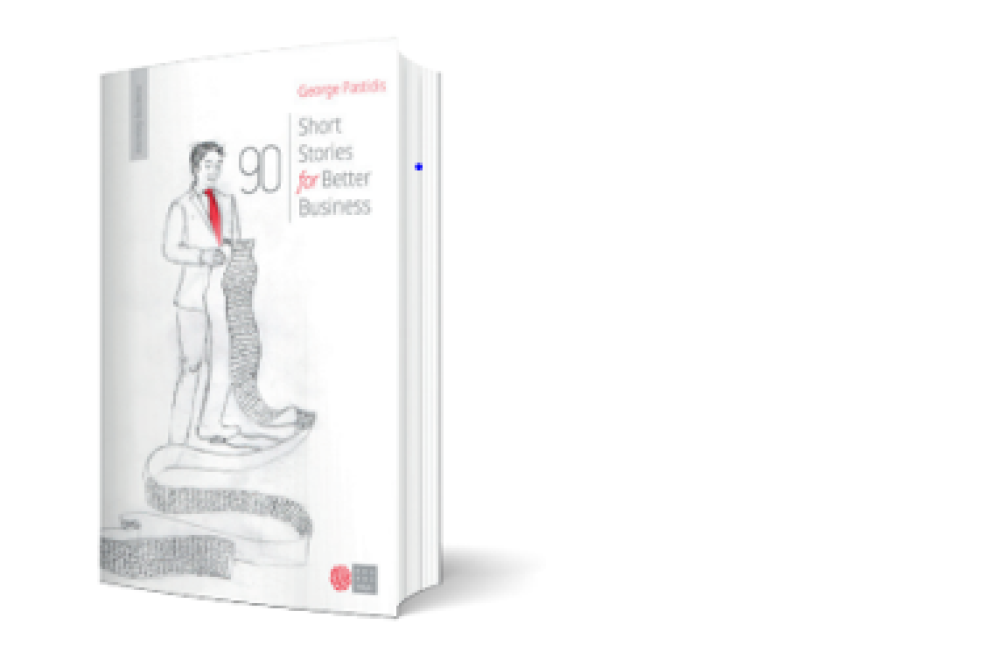
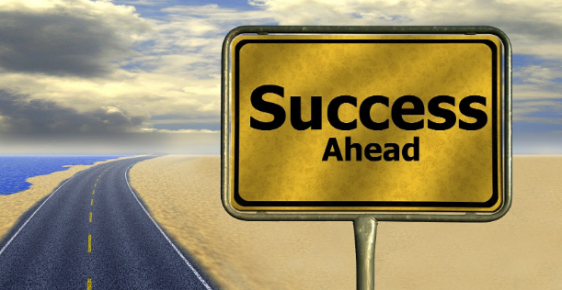
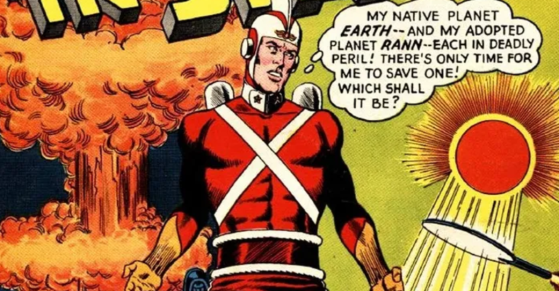



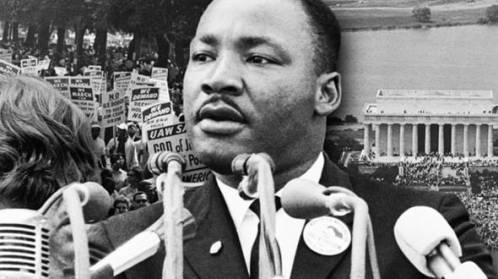




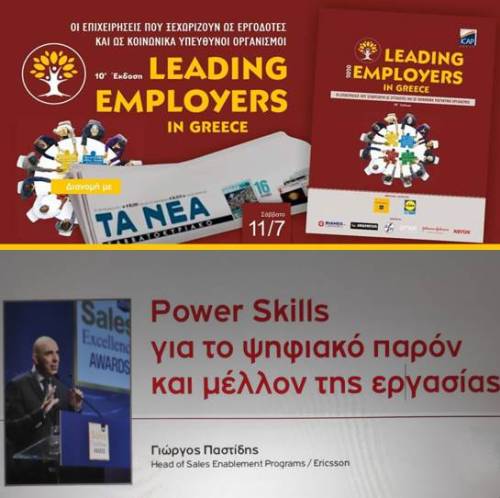




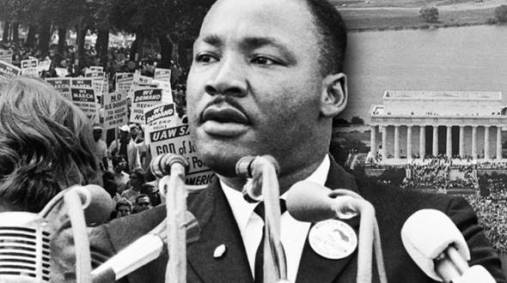


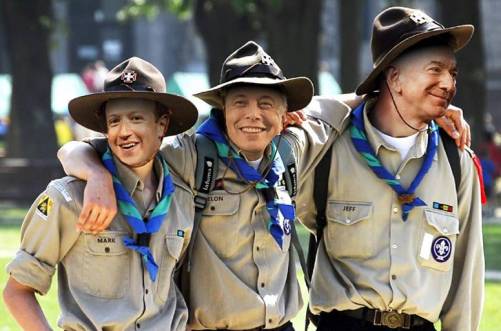



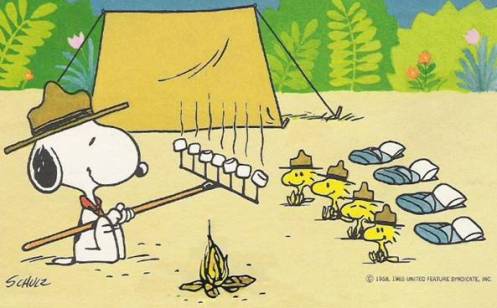

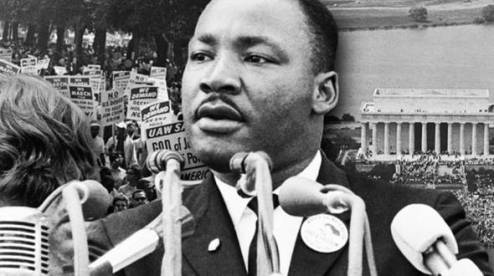
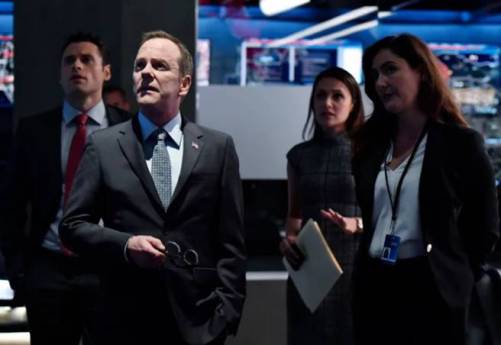

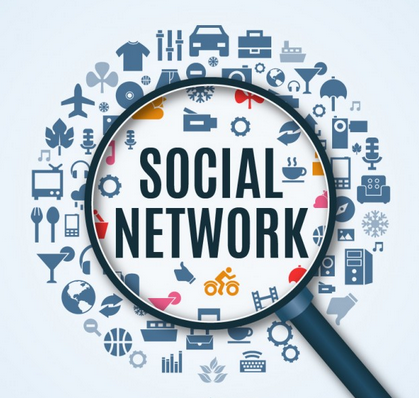
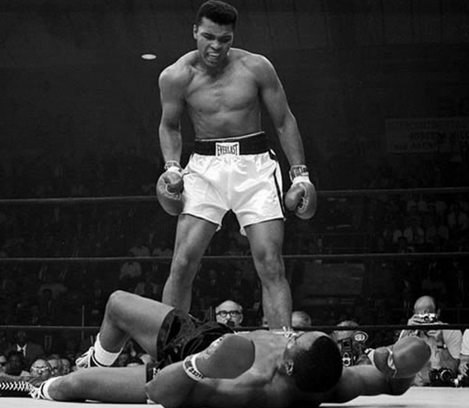


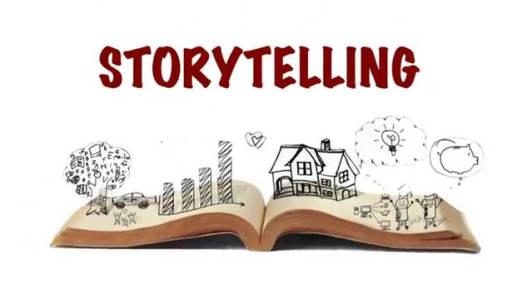
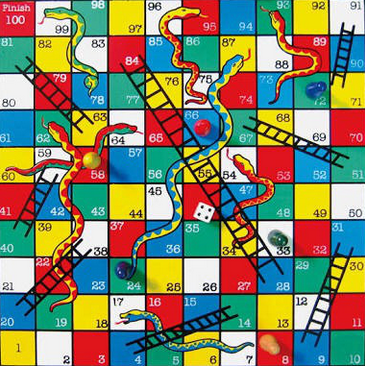

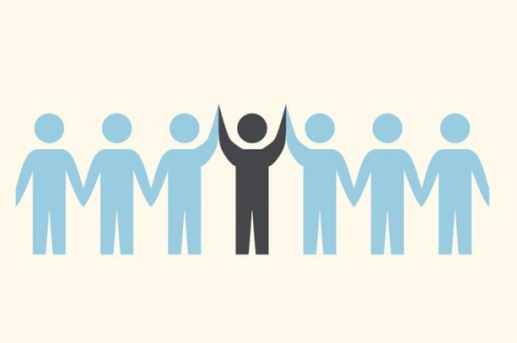




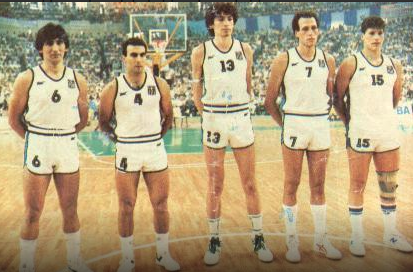
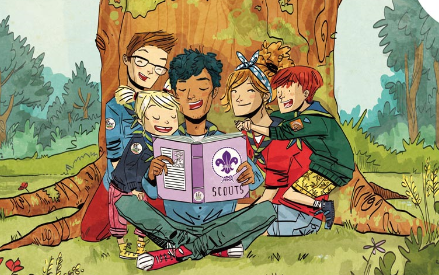

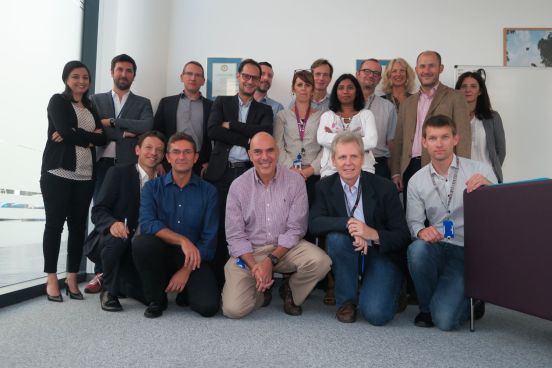
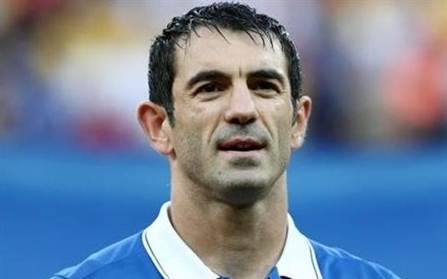
Pingback: Reposted in memory of Martin Luther King Jr. #mlkday | George Pastidis
Pingback: Home working during Covid: it’s his birthday | George Pastidis
Pingback: Should training in the post-Covid era switch back to its face-to-face modality? | George Pastidis
Pingback: We need more guys like Giannis | George Pastidis
Pingback: 12 hours with no mobile phone | George Pastidis
Pingback: Mikis Theodorakis: A great leader passed away | George Pastidis
Pingback: Job interviews: wrong turns both sides often take | George Pastidis
Pingback: Martin Luther King Jr. never died – (MLK Day – Reposting) | George Pastidis
Pingback: Be like detective Wallander or not? | George Pastidis
Pingback: Maybe there’s some purpose | George Pastidis
Pingback: Wimbledon mindgames | George Pastidis
Pingback: The Power of Skill | George Pastidis
Pingback: “Quiet quitting”? Really? | George Pastidis
Pingback: 4+1 books for the coming holidays | George Pastidis
Pingback: From Adam Strange to ChatGPT | George Pastidis
Pingback: How to quickly succeed in your new job | George Pastidis
Pingback: Find purpose at work | George Pastidis
Pingback: What I tell my daughter before her new student life | George Pastidis
Pingback: 10-year work anniversary: Adaptability, Stamina and Respect | George Pastidis
Pingback: Flex your Skills | George Pastidis
Pingback: Returning to Elon University, my alma mater | George Pastidis